Navigating the world of Product Carbon Footprint (PCF) software can be daunting, especially with so many tools available that claim to offer the best solutions.
As sustainability becomes a bigger priority for companies, finding the right software to track, report, and reduce carbon emissions is essential.
Here’s a breakdown of the top 5 PCF tools of 2025, covering features, usability, and value.
What to Look for in PCF Software
Before diving into the reviews, it's important to know what features make a Product Carbon Footprint (PCF) software or tool worth investing in. Some key considerations include:
- Accuracy: Does the tool provide reliable, region-specific data?
- Ease of Use: Is the platform intuitive enough to use with little training?
- Integrations: Can it integrate with your current systems and platforms?
- Scalability: Can it handle the needs of businesses with thousands of SKUs?
- Transparency: Can it stand up to external audits?
Now, let's explore the top PCF software solutions for 2025.
1. Arbor
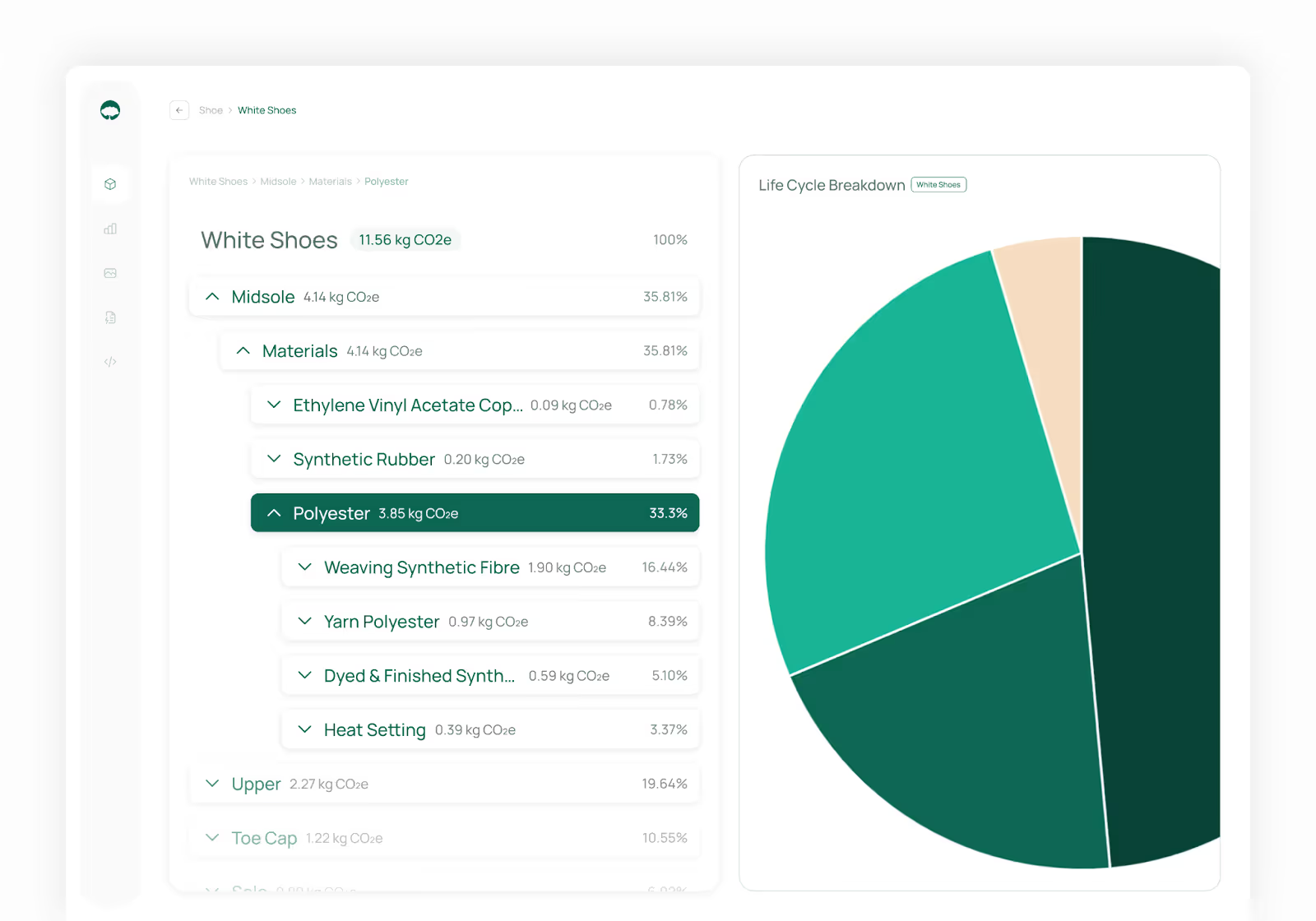
Overview
Arbor is an industry leader in PCF (Product Carbon Footprint) software designed for businesses looking to measure and manage their carbon emissions effectively. Its speed, scalability, and ease of use set Arbor apart. Whether you’re tracking emissions for a handful of products or thousands, Arbor makes the process streamlined.
Key benefits:
- Ease of Use: Arbor is the easiest way to gain precise insights at a product level and any scale. Arbor can handle thousands of SKUs much faster than its alternatives, making it ideal for companies with large product catalogues.
- Navigate Complexities: Arbor offers external validation through audits, adding credibility to your carbon reporting, allowing you to easily navigate external complexities and stay on top of evolving product/environmental regulations.
- Strategic Edge: Make your product’s decarbonization story your competitive advantage to unlock new customers or increase revenue and loyalty from existing buyers.
Key Features:
- In-depth Insights: Through the Arbor platform, you unlock hotspot analyses for your products. These hotspot analyses unlock the most in-depth insights into the origination of carbon throughout your supply chain - empowering you to make thoughtful decisions to reduce that product’s footprint.
- Best-in-class Accuracy: The software uses region-specific data and integrates with your existing data sources to ensure calculations align with your company’s understanding of emissions.
- Integrations: Arbor offers API integrations and has a Shopify App, making it easy to plug into your existing tech stack.
- Web-based Platform: Arbor’s web-based platform will keep heavy, outdated databases off your desktop and out of your technology stack, ensuring your IT teams are at ease
Best for:
Companies that want a scalable, automated solution to measuring the carbon footprint of products with little risk of human error. Arbor is perfect for industries like fashion, packaging, electronics and more. If you’re passionate about creating products with a lower carbon footprint, Arbor is the obvious answer.
Website:
Overall, Arbor stands out as a user-friendly and scalable tool for product carbon footprint management, making it a strong choice for businesses seeking to measure and reduce their environmental impact efficiently.
Request a demo to see how easy it is to measure your product’s carbon footprint
or see an overview of Arbor's platform
{{cta}}
2. OneClickLCA
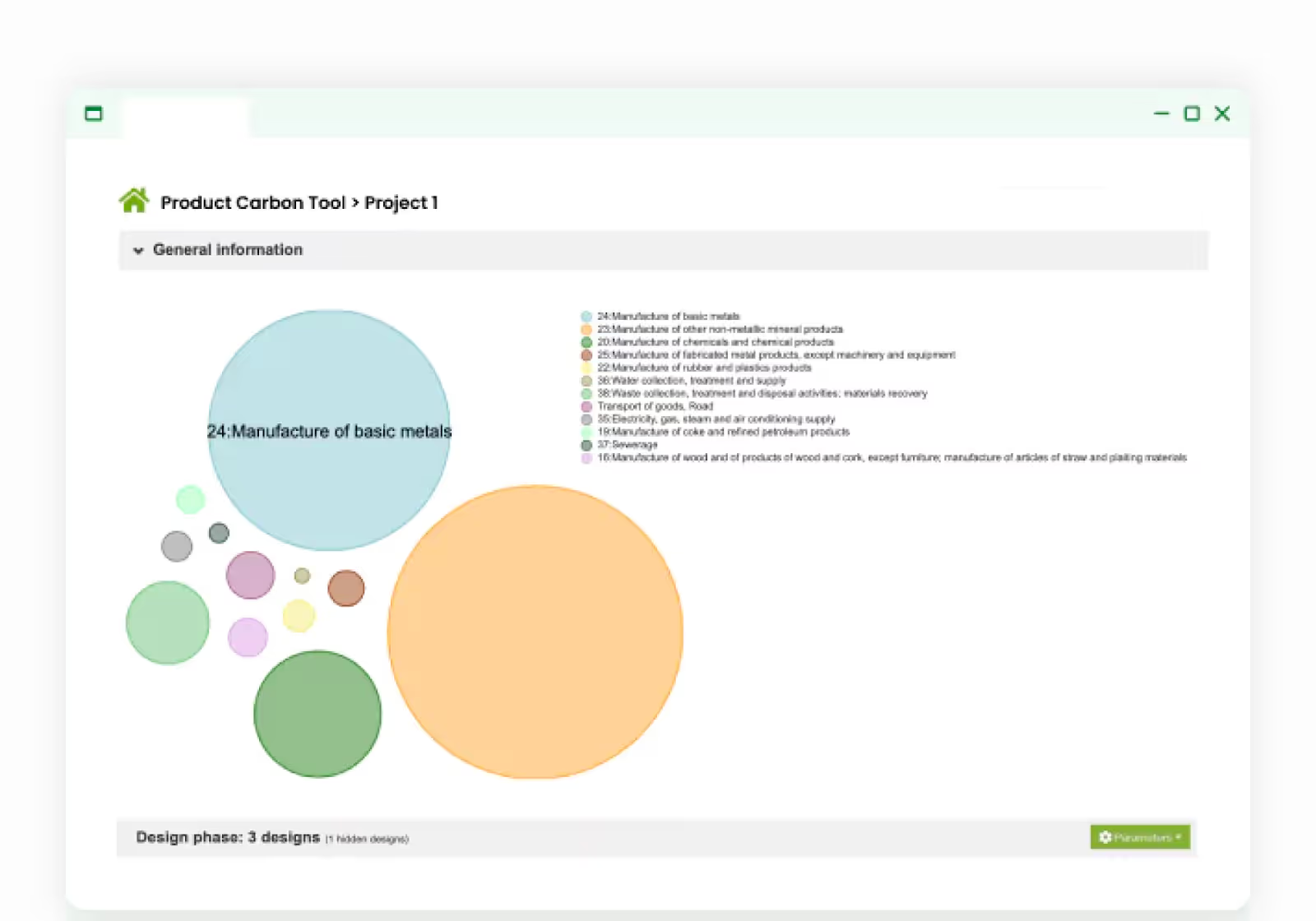
Overview
OneClickLCA is a versatile carbon footprint calculator primarily focused on the construction and building sectors. It offers specialized tools for Life Cycle Assessments (LCAs) in these industries but may not be as applicable to businesses with product-level carbon tracking needs.
Key features:
- Industry-Specific: Tailored to the construction sector with robust LCA support.
- Data Granularity: Provides detailed breakdowns for construction-related emissions.
- Ease of Use: Slightly more complex, requiring more manual data entry for certain functions.
Best for:
Construction companies and businesses focused on built environments. Less suitable for product-based industries.
Website:
Overall, OneClickLCA is a valuable tool for businesses in the construction and building sectors. Its industry-specific focus and detailed LCA capabilities make it a strong choice for assessing and reducing carbon emissions in these areas. However, for businesses with product-level carbon tracking needs, other tools may be more appropriate.
3. Ecochain Mobius
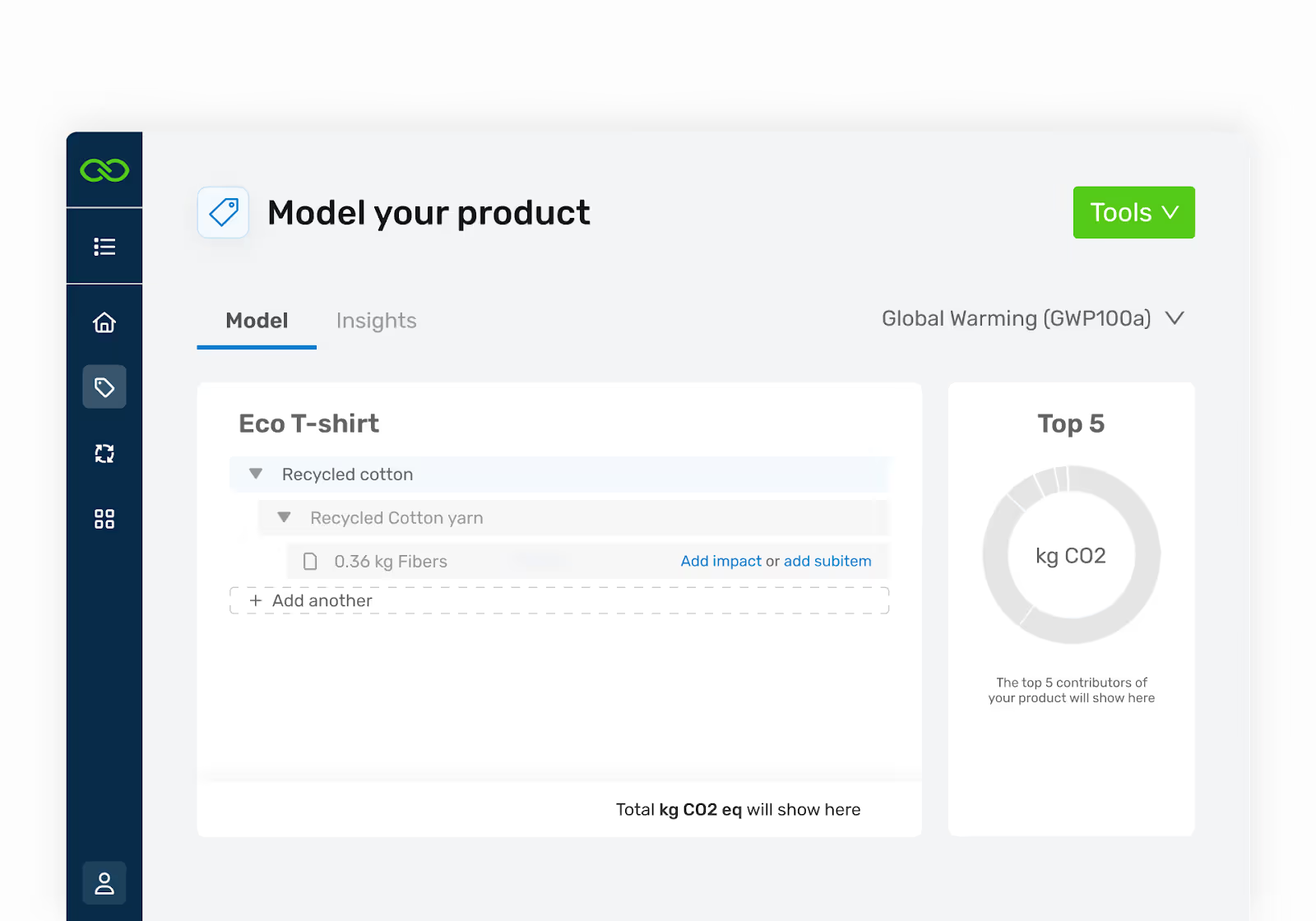
Overview
Ecochain Mobius is a flexible carbon accounting tool aimed at businesses seeking a clear understanding of their supply chain’s environmental impact. It specializes in product-level LCAs, similar to Arbor.
Key features:
- Hotspot Analysis: Ecochain Mobius identifies carbon hotspots across the supply chain.
- Methodology: Uses GHG Protocol and other established standards to ensure accuracy.
- Granularity: Offers detailed, region-specific data similar to Arbor.
Best for:
Companies focused on sustainable procurement and reducing carbon in the supply chain. Great for industries like textiles, fashion, and electronics.
Website:
Ecochain Mobius appears as a robust carbon accounting tool for businesses seeking in-depth product sustainability analysis. Its strengths lie in precise product-level assessments, pinpoint hotspot identification, and adherence to established methodologies.
4. OpenLCA
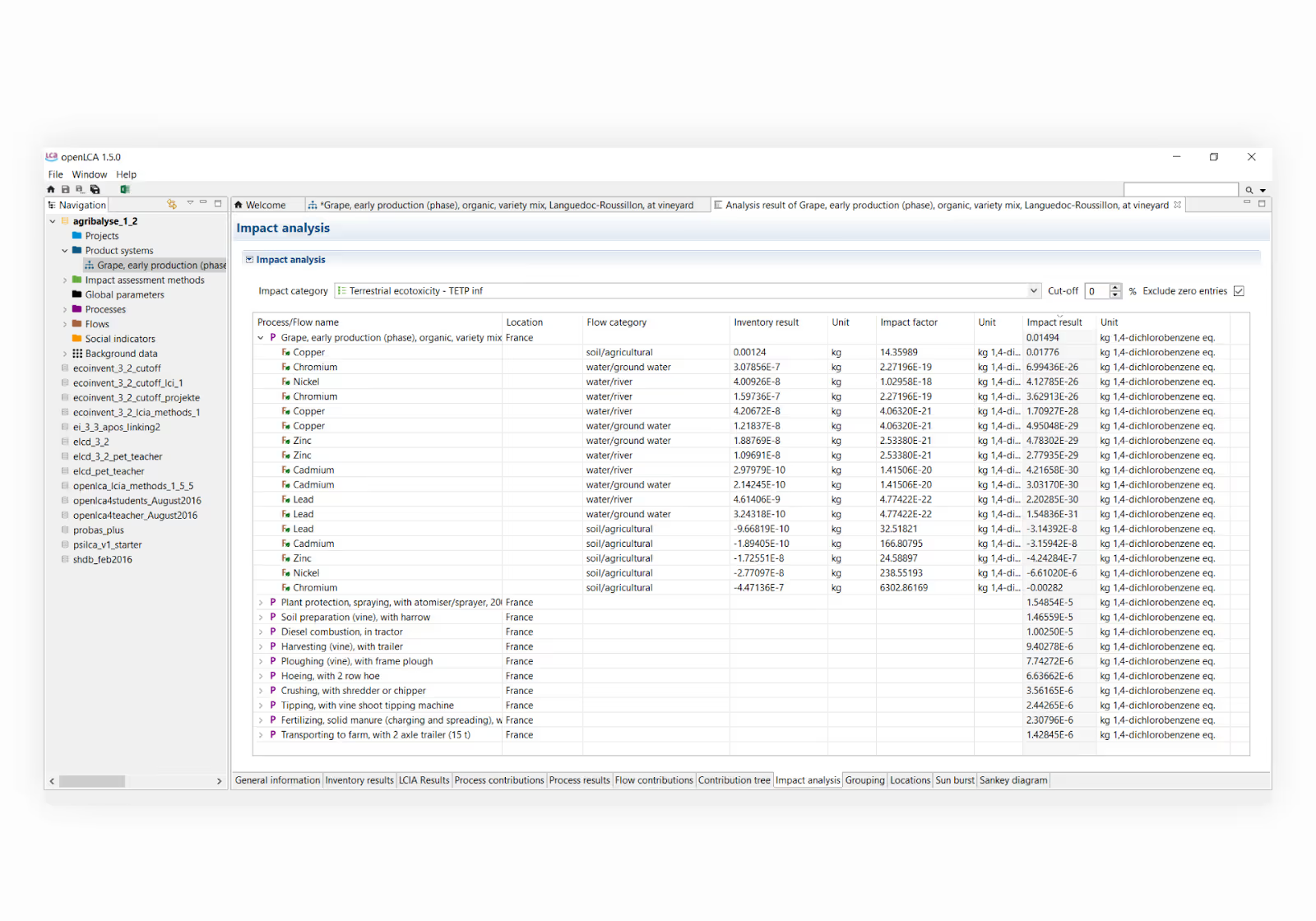
Overview
OpenLCA is an open-source tool that offers Life Cycle Assessments for various industries. While highly customizable and detailed, OpenLCA can be more complex and less user-friendly than its competitors.
Key features:
- Customizable: Highly flexible but may require advanced knowledge to set up.
- Comprehensive Data: Can provide detailed emissions data but lacks automation features.
- Free Calculations: OpenLCA offers a cost-effective solution for those willing to invest time in manual data entry and setup.
Best for:
Businesses with technical expertise in carbon accounting or those who need free, customizable LCA solutions. Better suited for smaller companies or academic research than large enterprises.
Website:
Overall, OpenLCA is a powerful tool for businesses and researchers with the technical expertise to leverage its customization features. Its open-source nature and detailed data capabilities make it valuable for specific applications. However, for businesses prioritizing ease of use and requiring a more user-friendly solution, competitor tools might be a better fit
5. 2030 Calculator
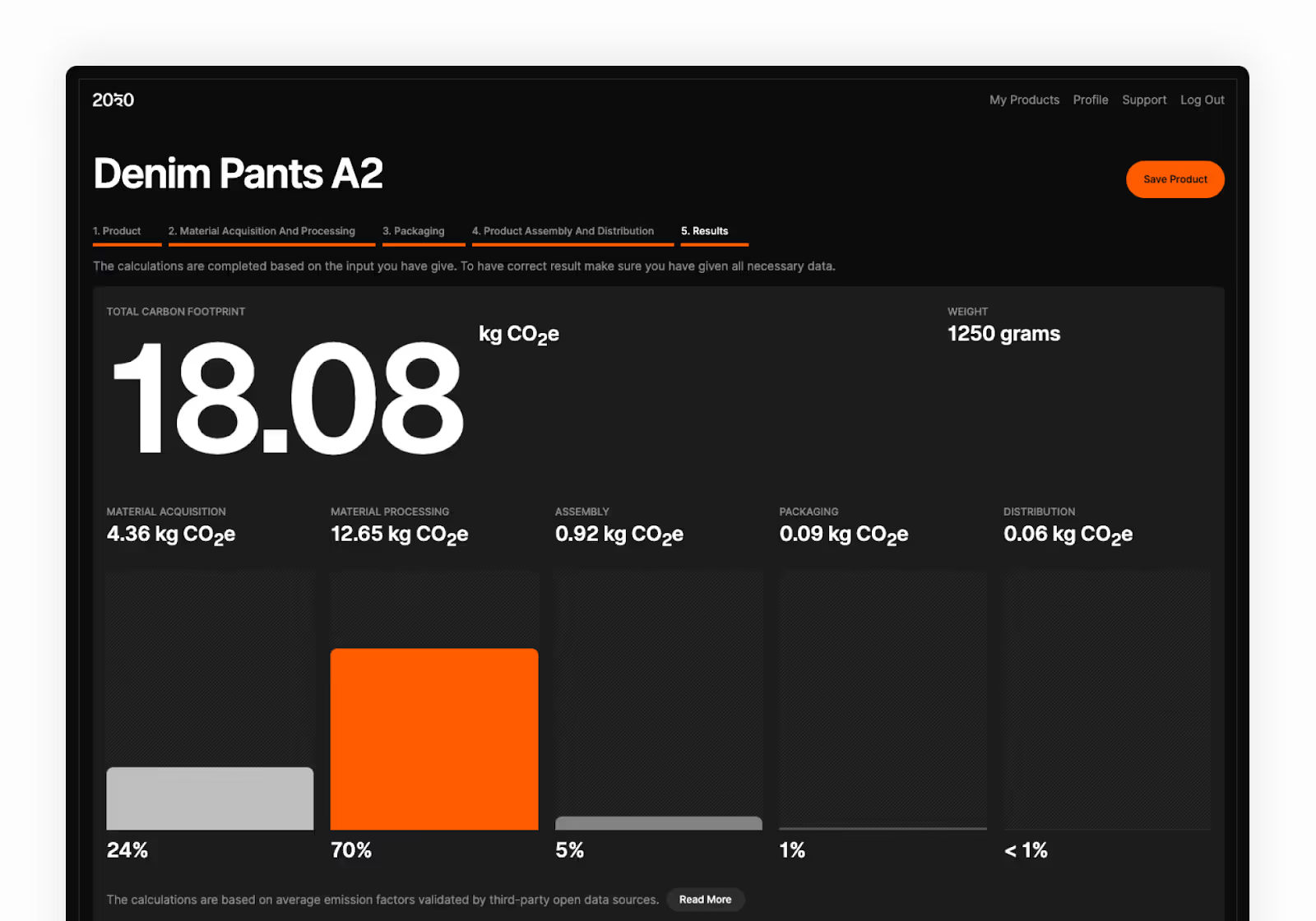
Overview
The 2030 Calculator is a simple, free tool that helps companies quickly estimate their product's carbon footprint. While it doesn’t offer the in-depth features of Arbor or Ecochain Mobius, it’s a useful starting point for small businesses or companies that want a quick carbon footprint estimate.
Key features:
- Free: Offers three free calculations, making it ideal for businesses on a budget.
- Easy to Use: Simple interface, but lacks the depth needed for comprehensive carbon reporting.
- Best For: Small businesses or companies that want a quick snapshot of their product’s carbon footprint.
Best for:
Small businesses or startups that want a simple, cost-effective way to estimate their carbon emissions without the need for detailed analysis or reporting.
Website:
Overall, the 2030 Calculator is a valuable resource for businesses seeking a quick and easy introduction to carbon footprinting. Its simplicity and free tier make it a great starting point, particularly for smaller entities. However, companies requiring detailed analysis, extensive reporting, or assessments for complex products might need a more comprehensive tool.
Summary
Choosing the right PCF software depends on your company’s specific needs, whether it's scalability, ease of use, or industry-specific features.
Arbor stands out as the best all-around option for companies looking for scalable, automated, and easy-to-use product carbon footprinting (PCF) software. At the same time, other tools like OneClickLCA and Ecochain Mobius offer more niche capabilities for specific industries.
Looking to measure your product’s carbon emissions?
Talk to Arbor’s carbon experts today to see how our platform can help you streamline your carbon measurement.
Measure your carbon emissions with Arbor
Simple, easy carbon accounting.
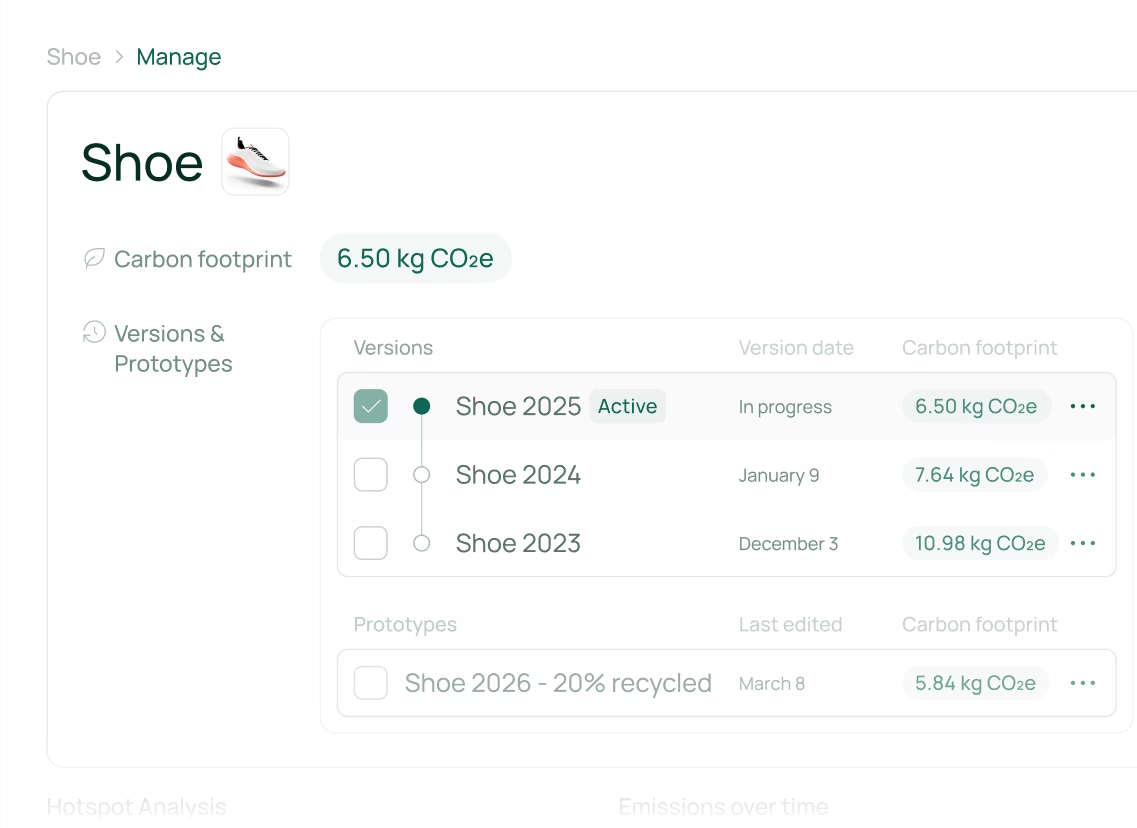
FAQ: Choosing the Right PCF Software
What’s the most important feature of a PCF tool?
The most important features to look for in a PCF tool are accuracy and scalability. Ensure the software uses reliable data sources and can handle your company's needs as it grows.
How does Arbor compare to other tools?
Arbor is faster, more scalable, and easier to use than most competitors. Its self-serve, automated approach makes it a great choice for companies looking to track emissions across thousands of SKUs with minimal manual input.
Is there a free PCF tool available?
Yes, Arbor offers a limited number of free calculations, making it a good starting point for businesses looking to explore carbon accounting on a budget.
What’s the difference between LCA (Life Cycle Assessment) & PCF (Product Carbon Footprint) software?
The main difference between LCA (Life Cycle Assessment) and PCF (Product Carbon Footprint) software lies in their scope. An LCA typically covers the entire life cycle of a product, from cradle to grave, including resource extraction, manufacturing, use, and disposal phases.
In contrast, a PCF often focuses on the cradle to gate stages, meaning it measures the carbon emissions from initial raw material extraction to the point where the product leaves the production facility, not including the use and disposal phases.


%20Software%20and%20Tools.avif)

.webp)
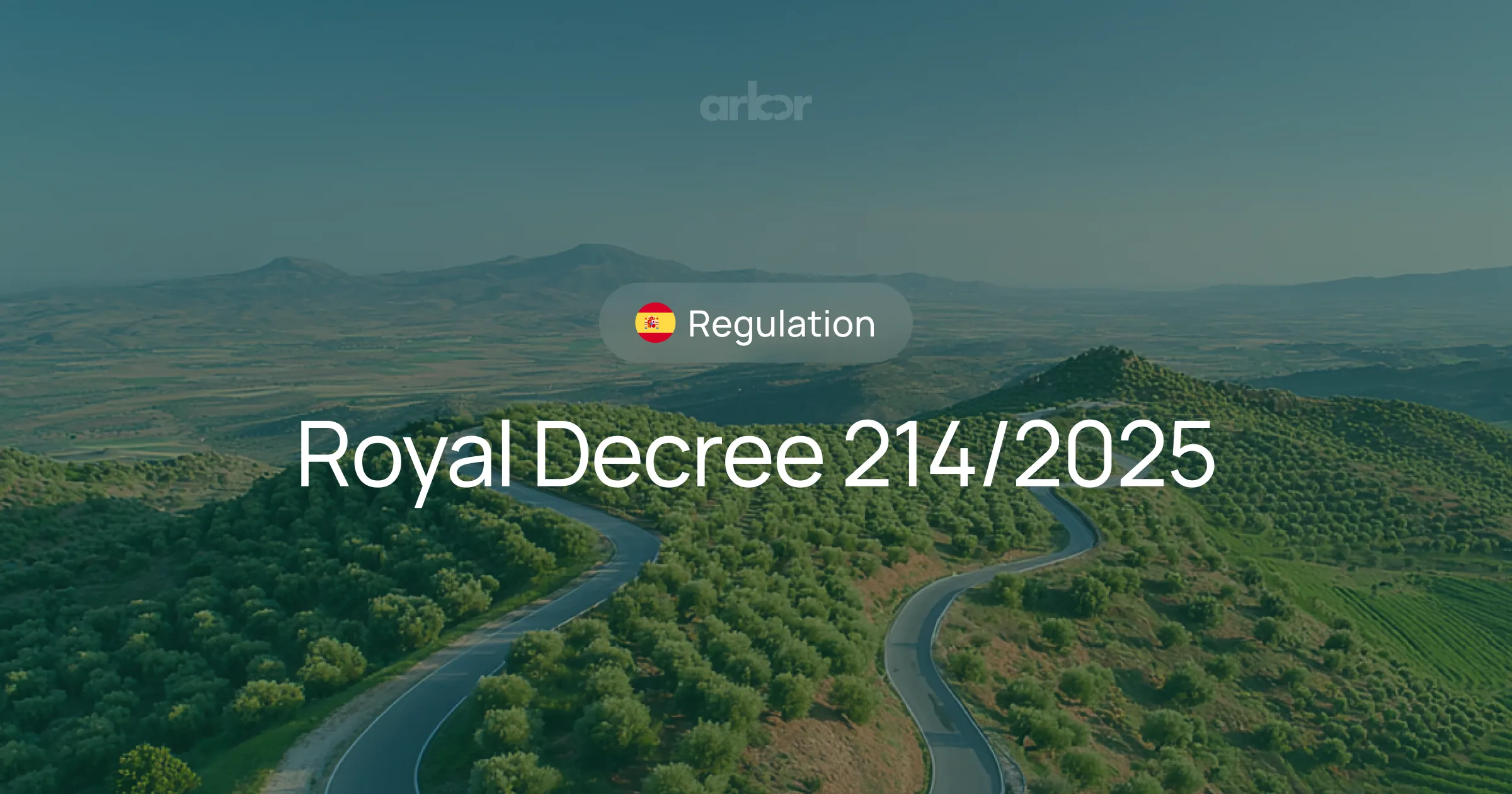


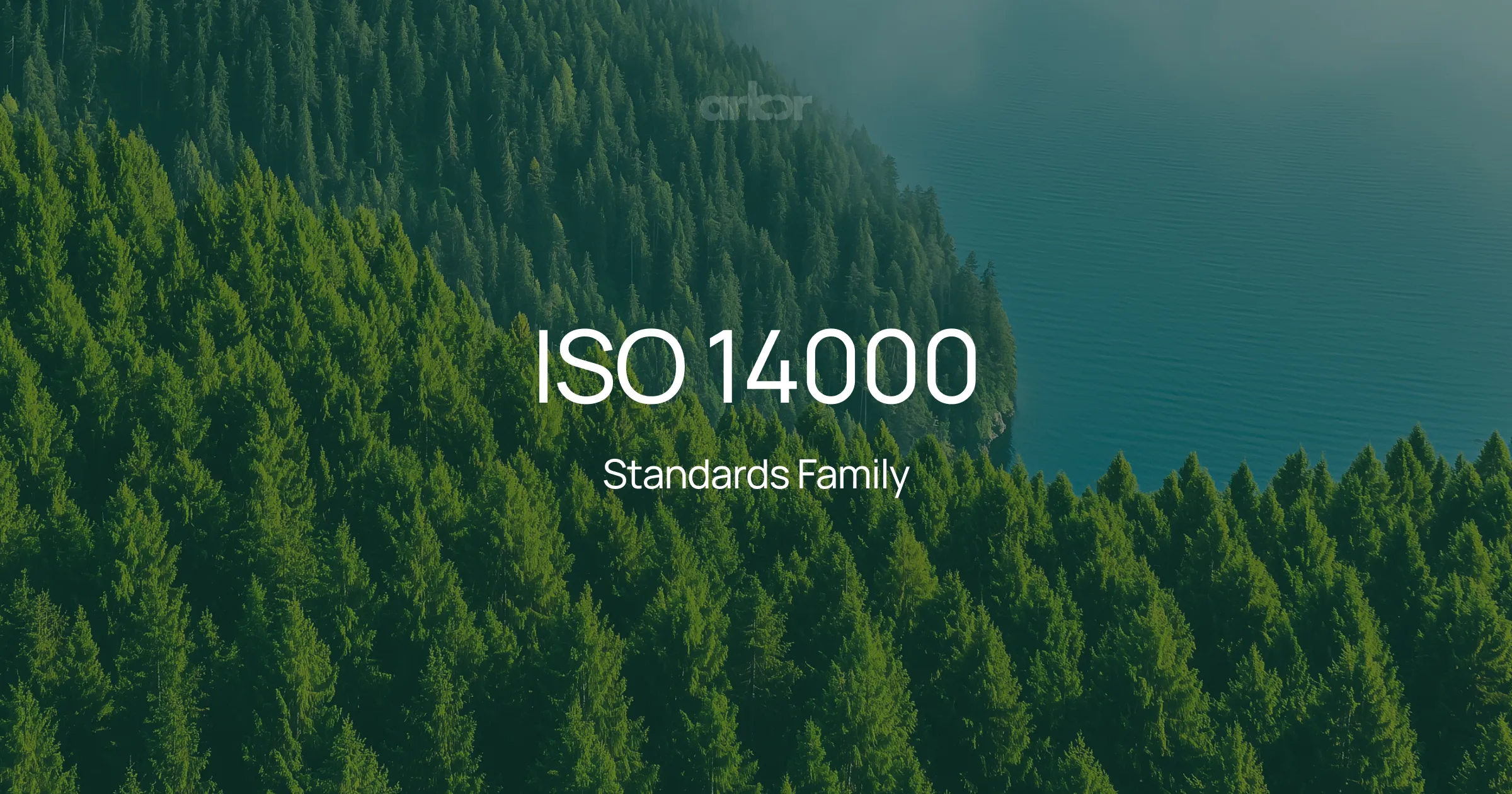
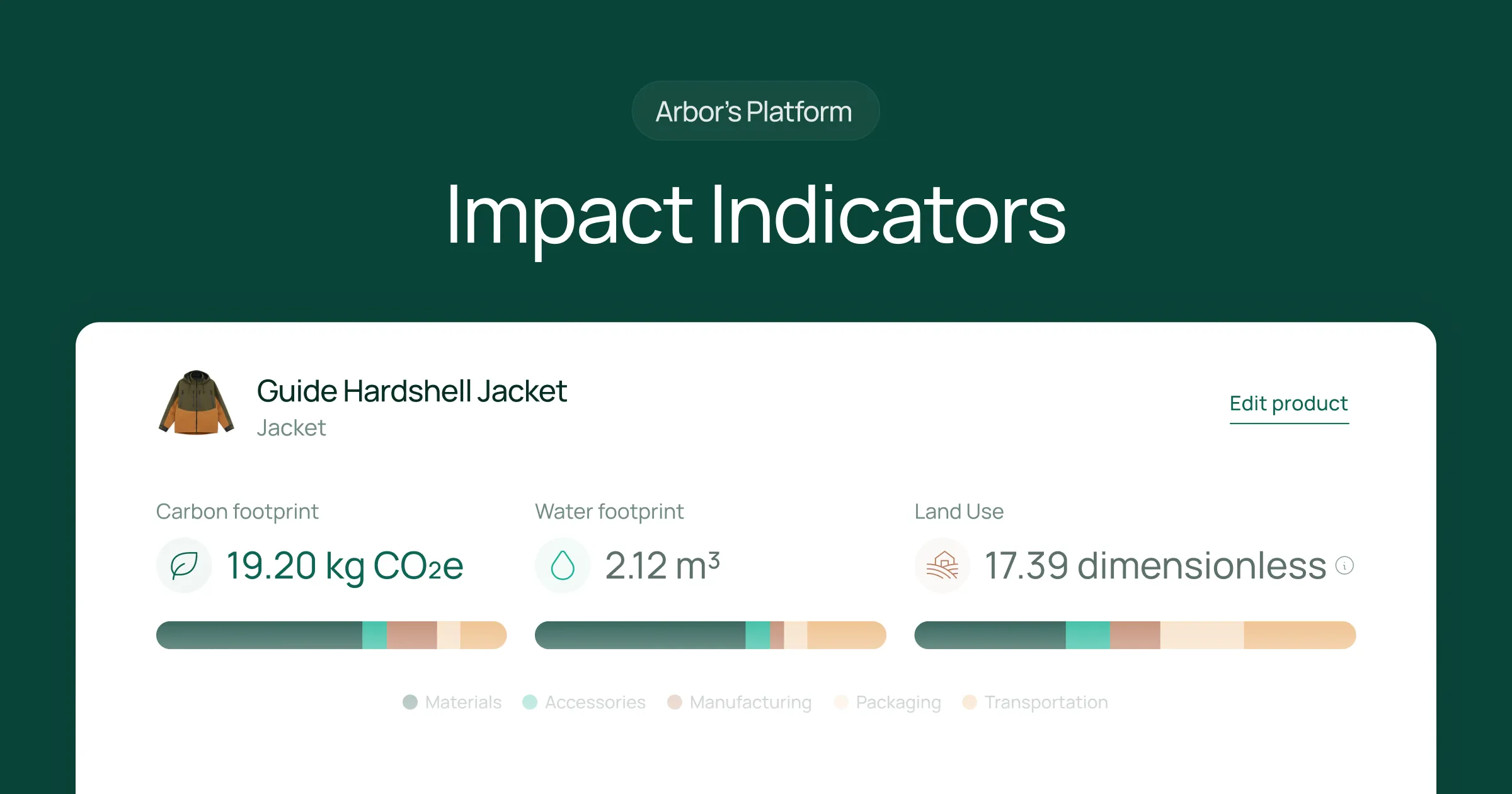
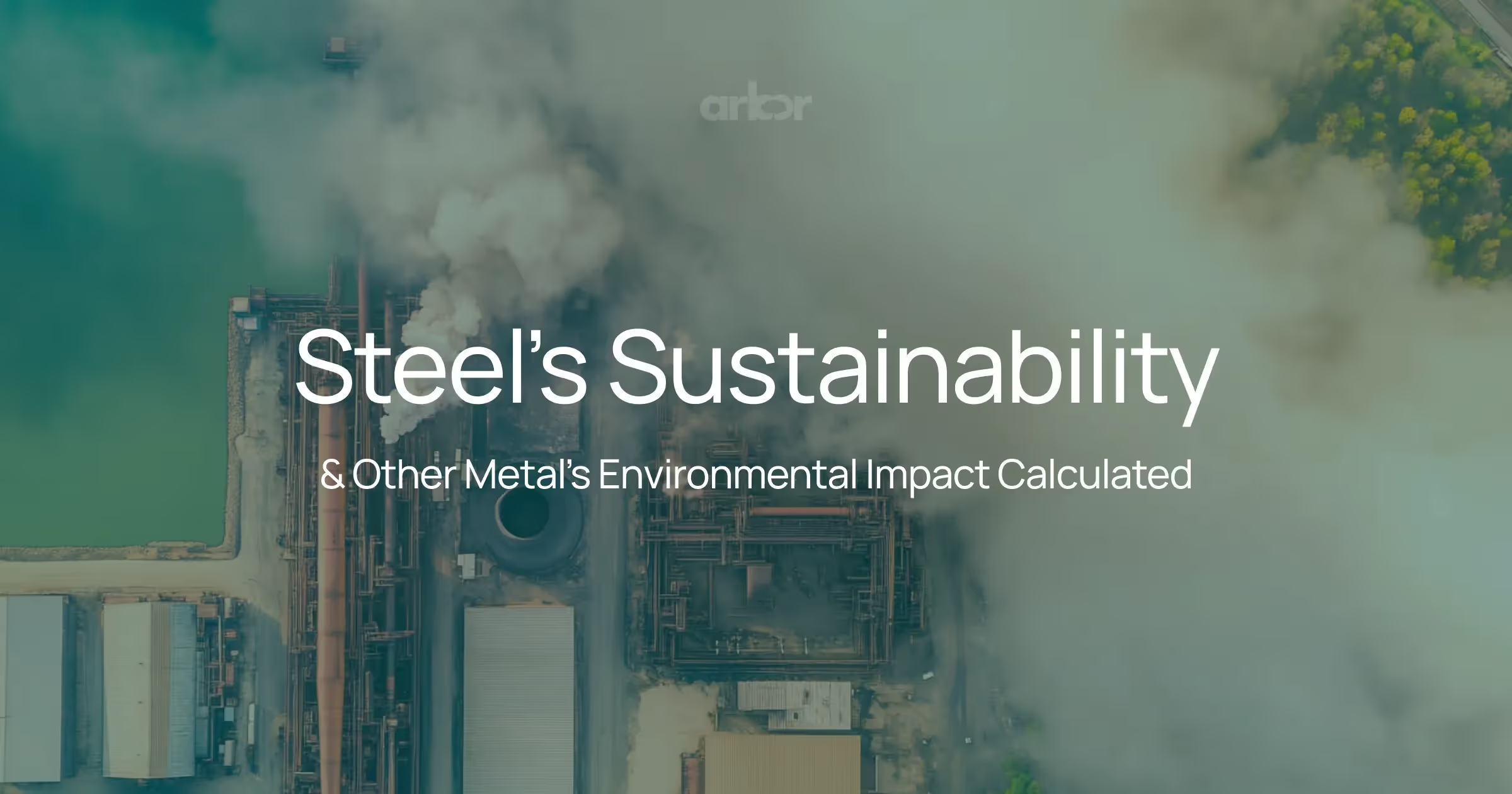

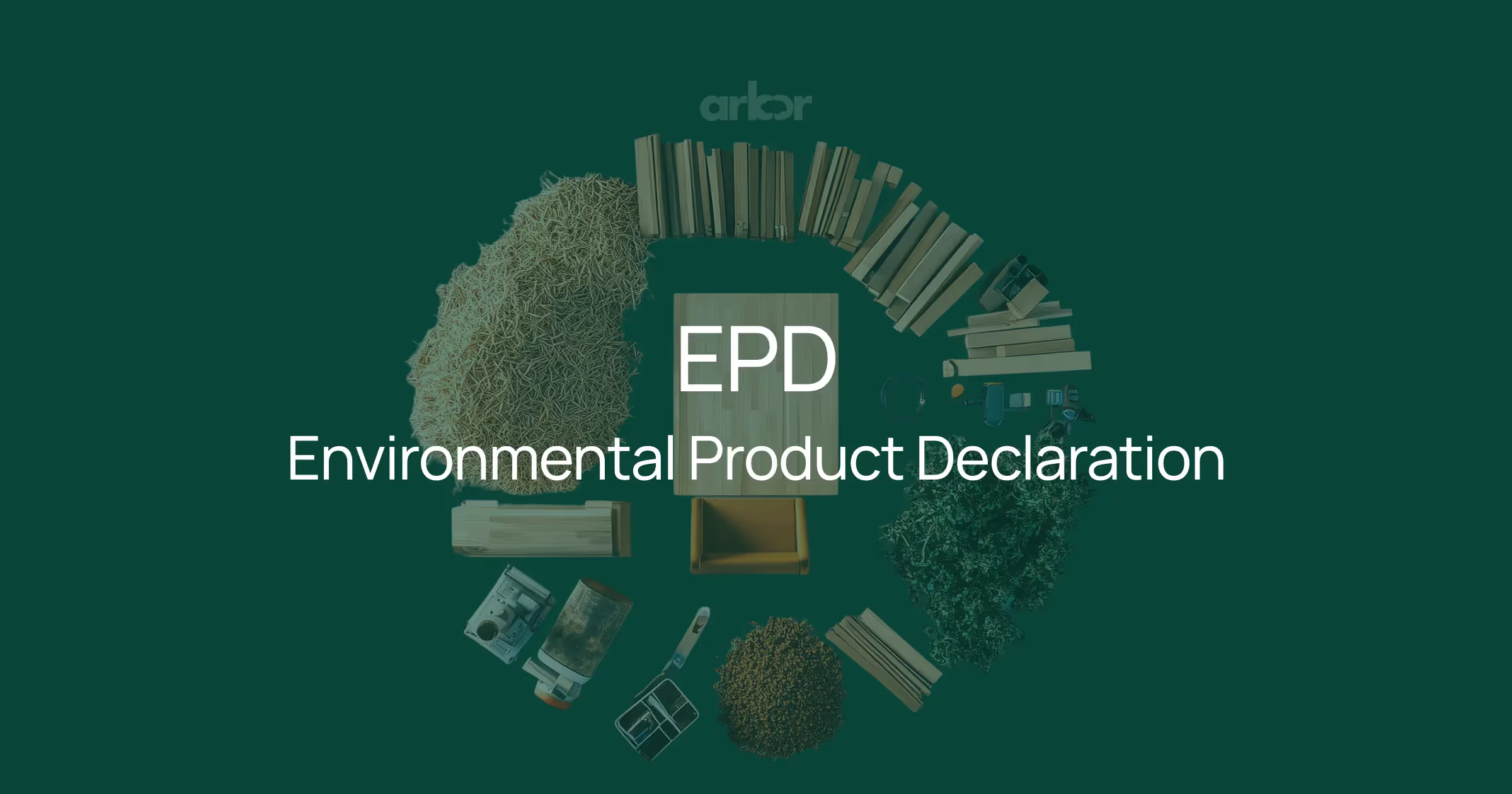
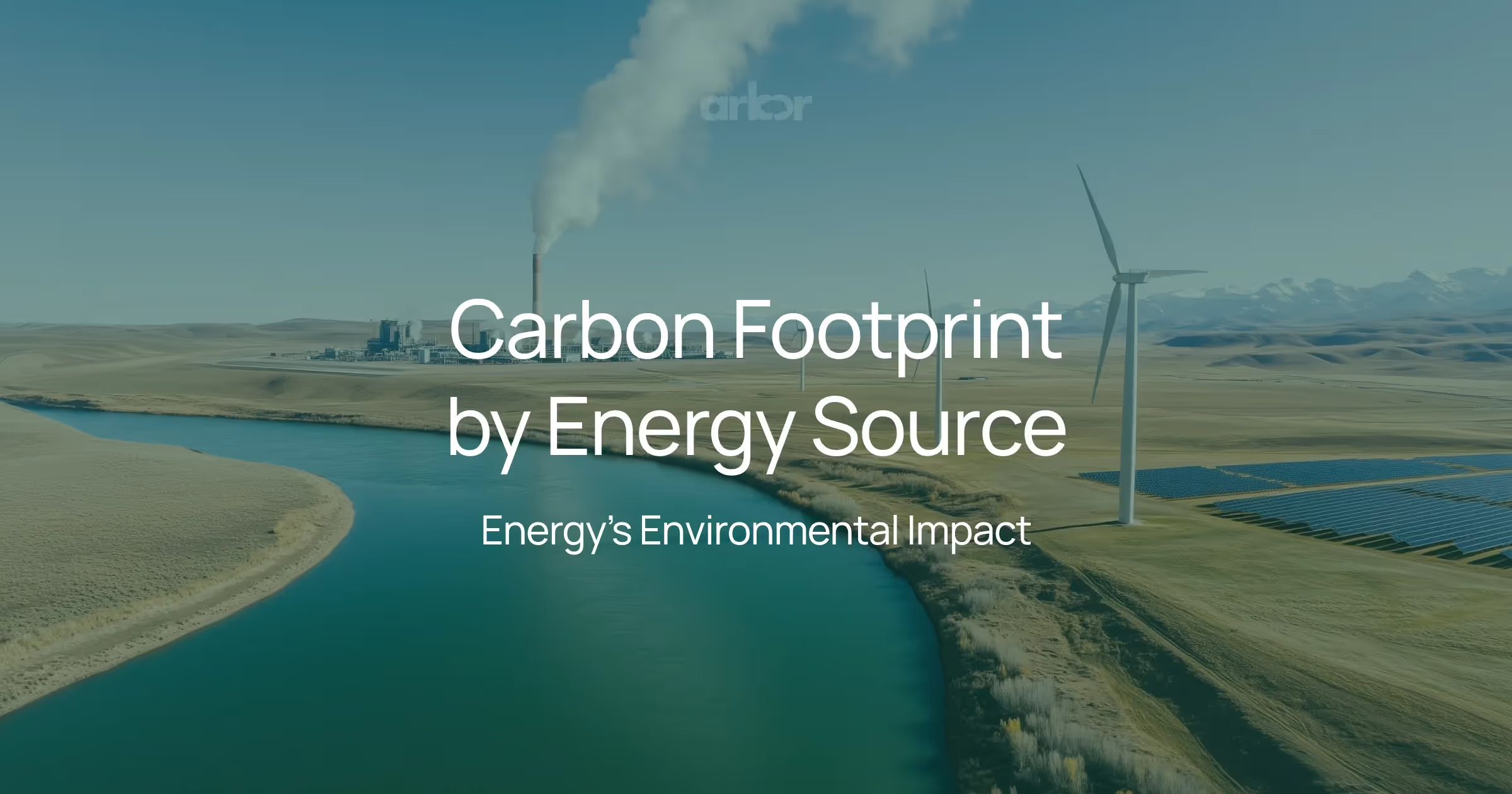
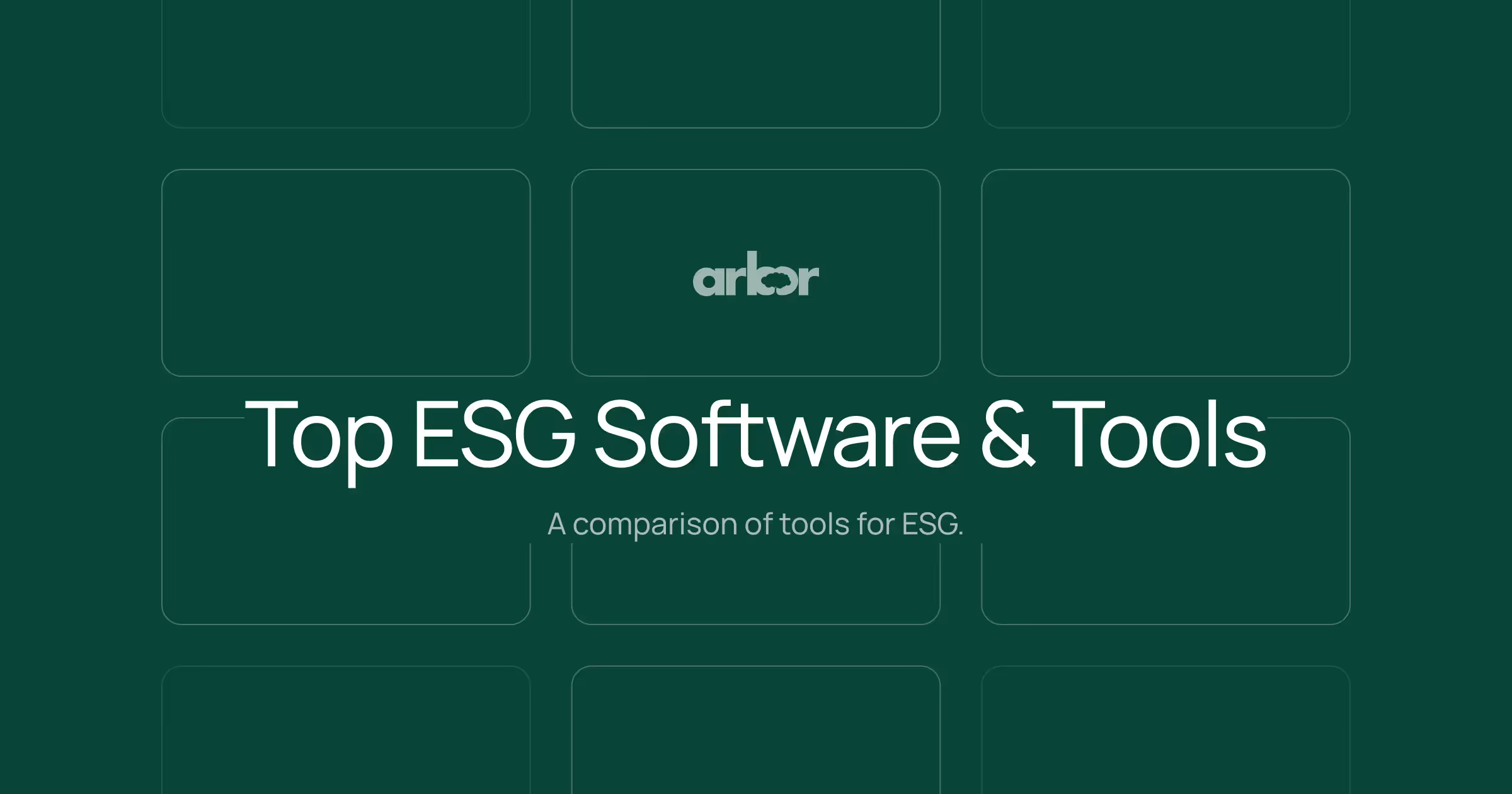
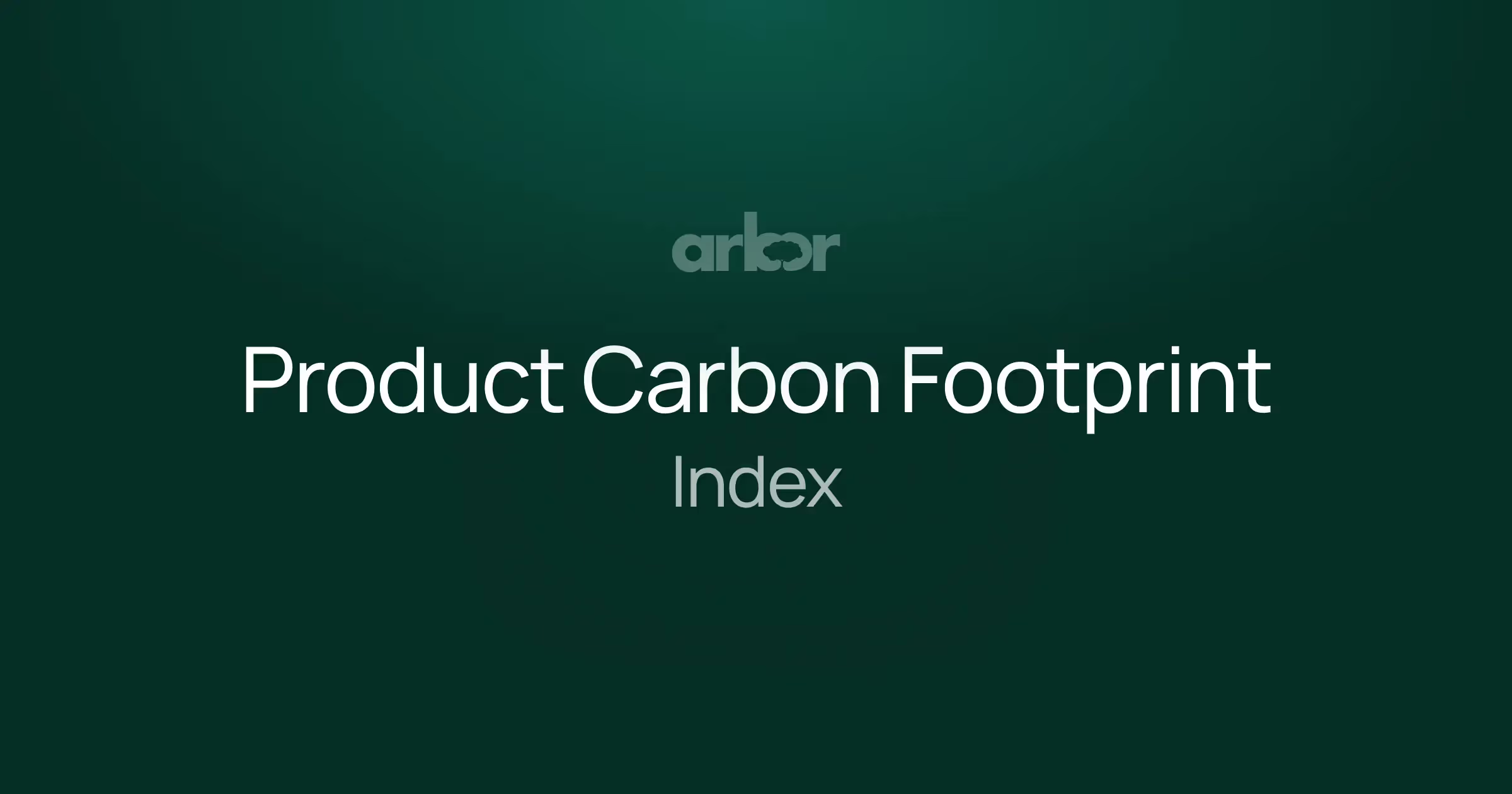
%20Arbor.avif)
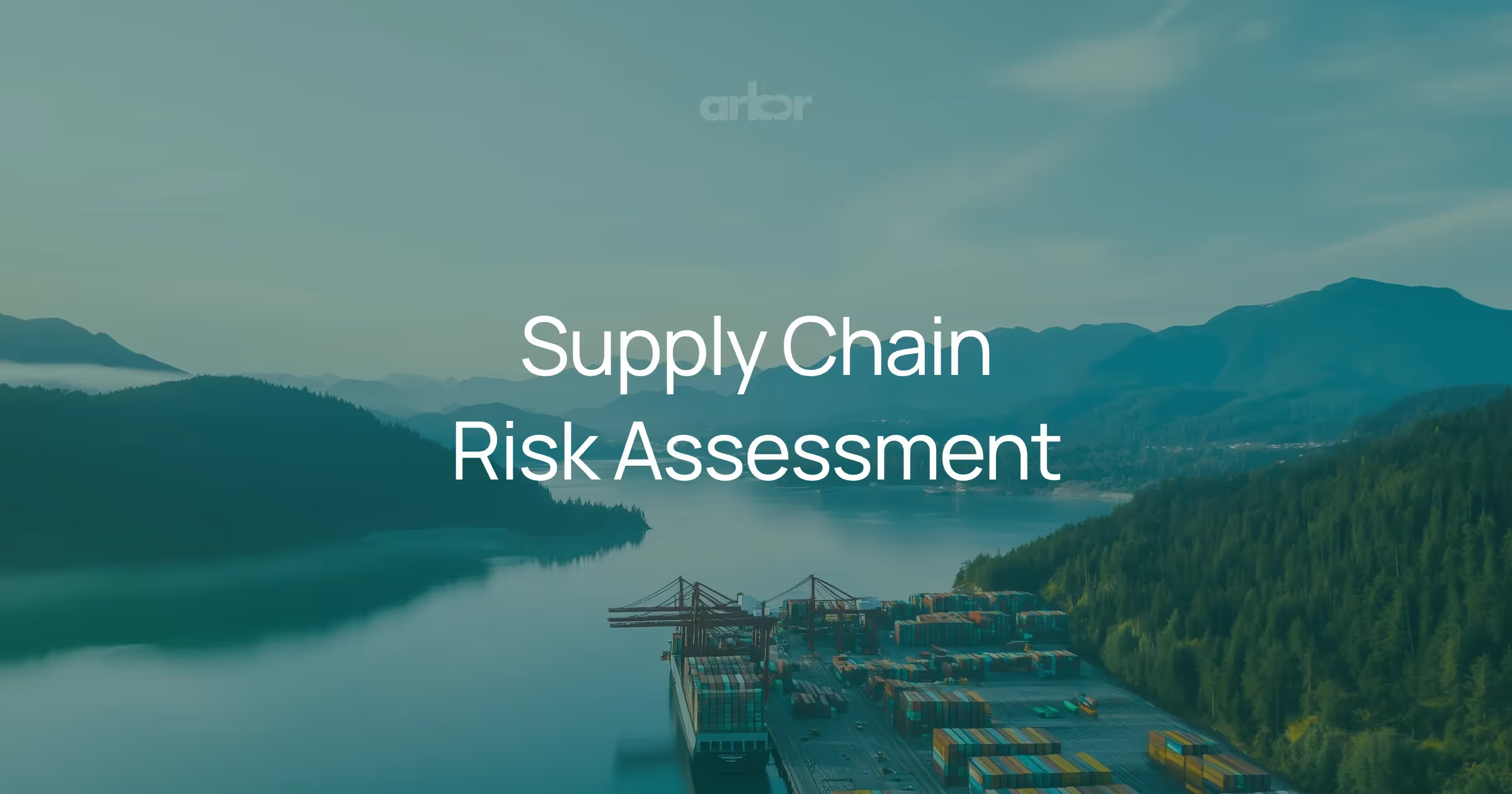
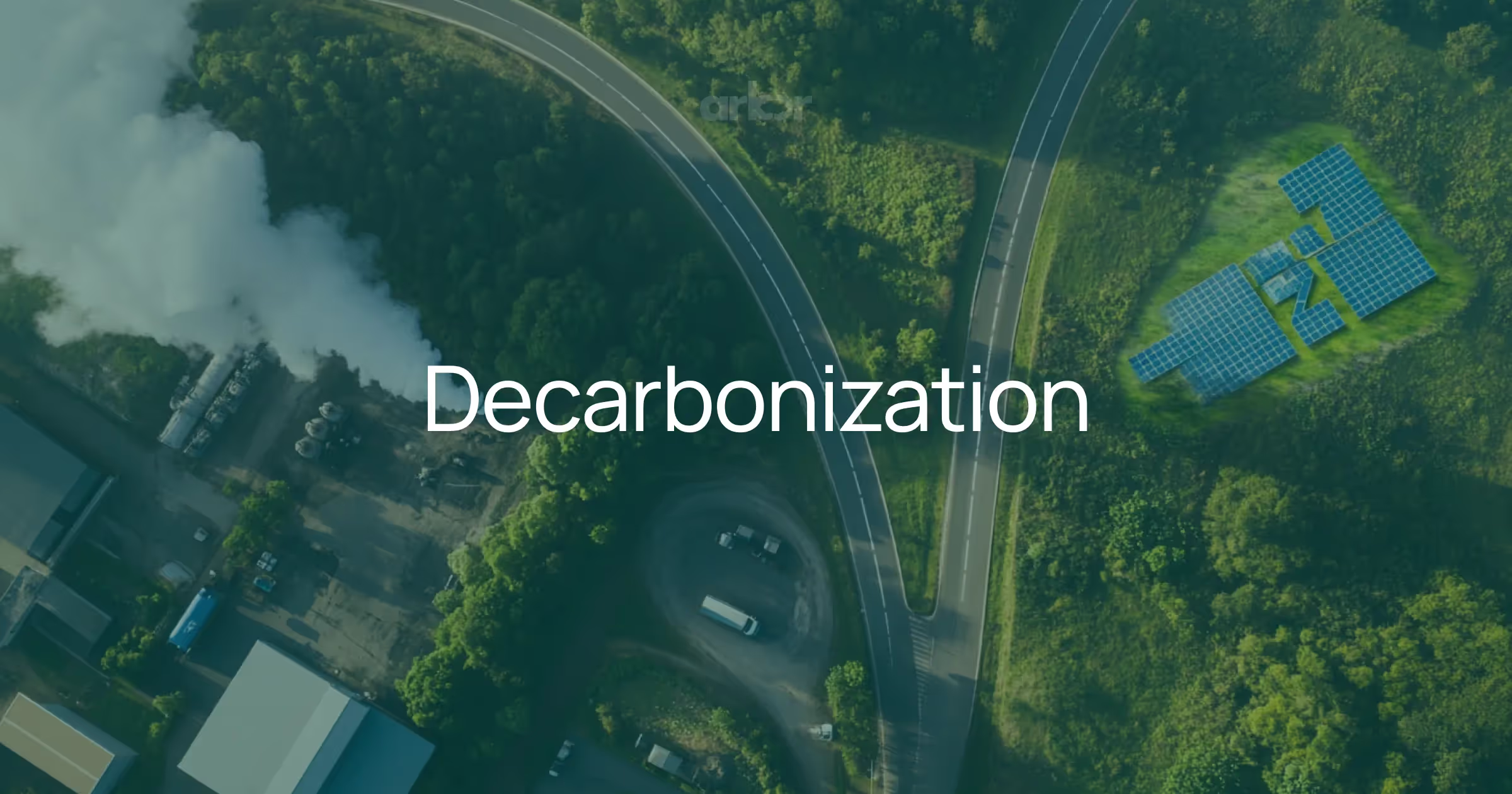

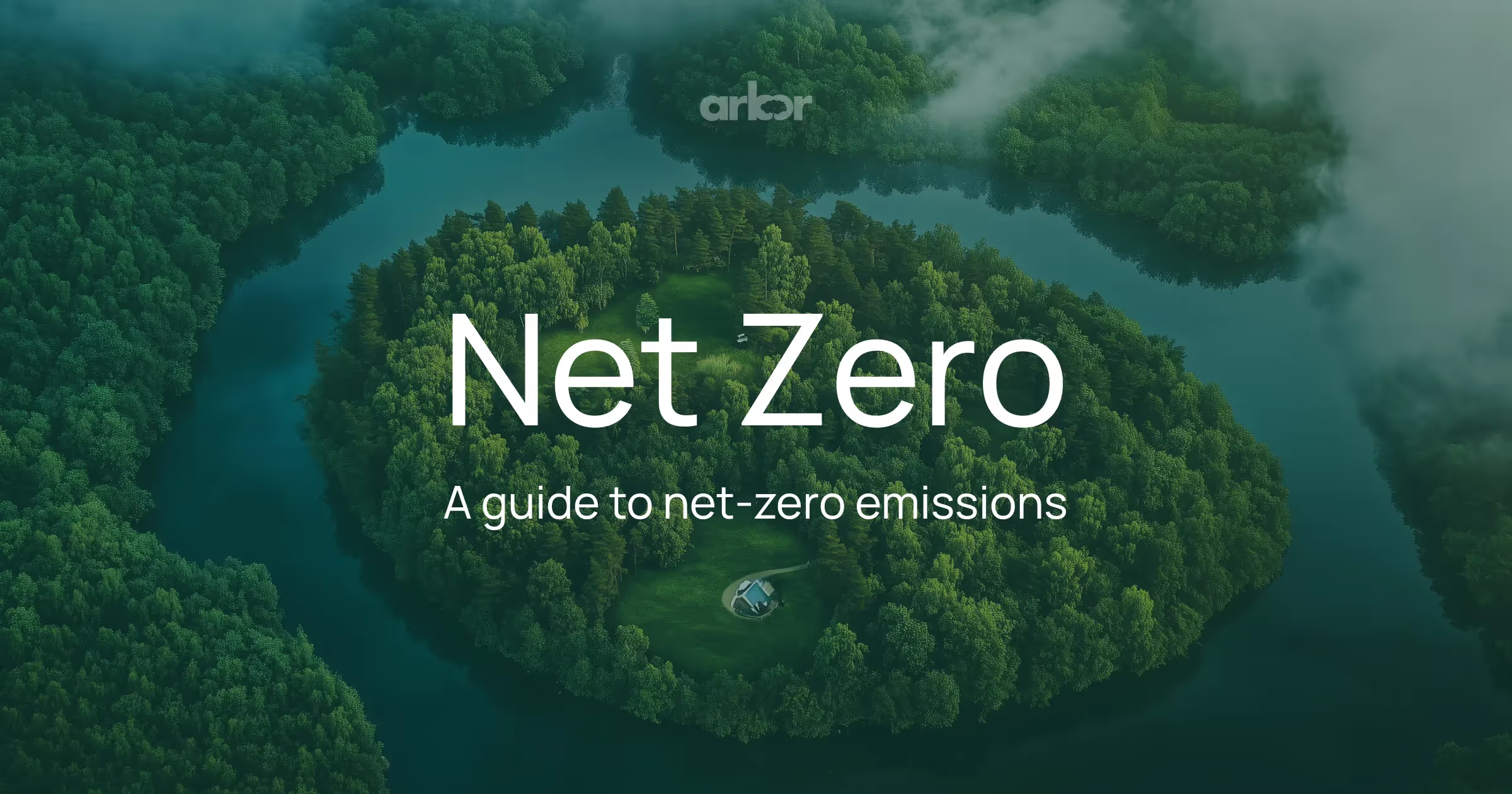
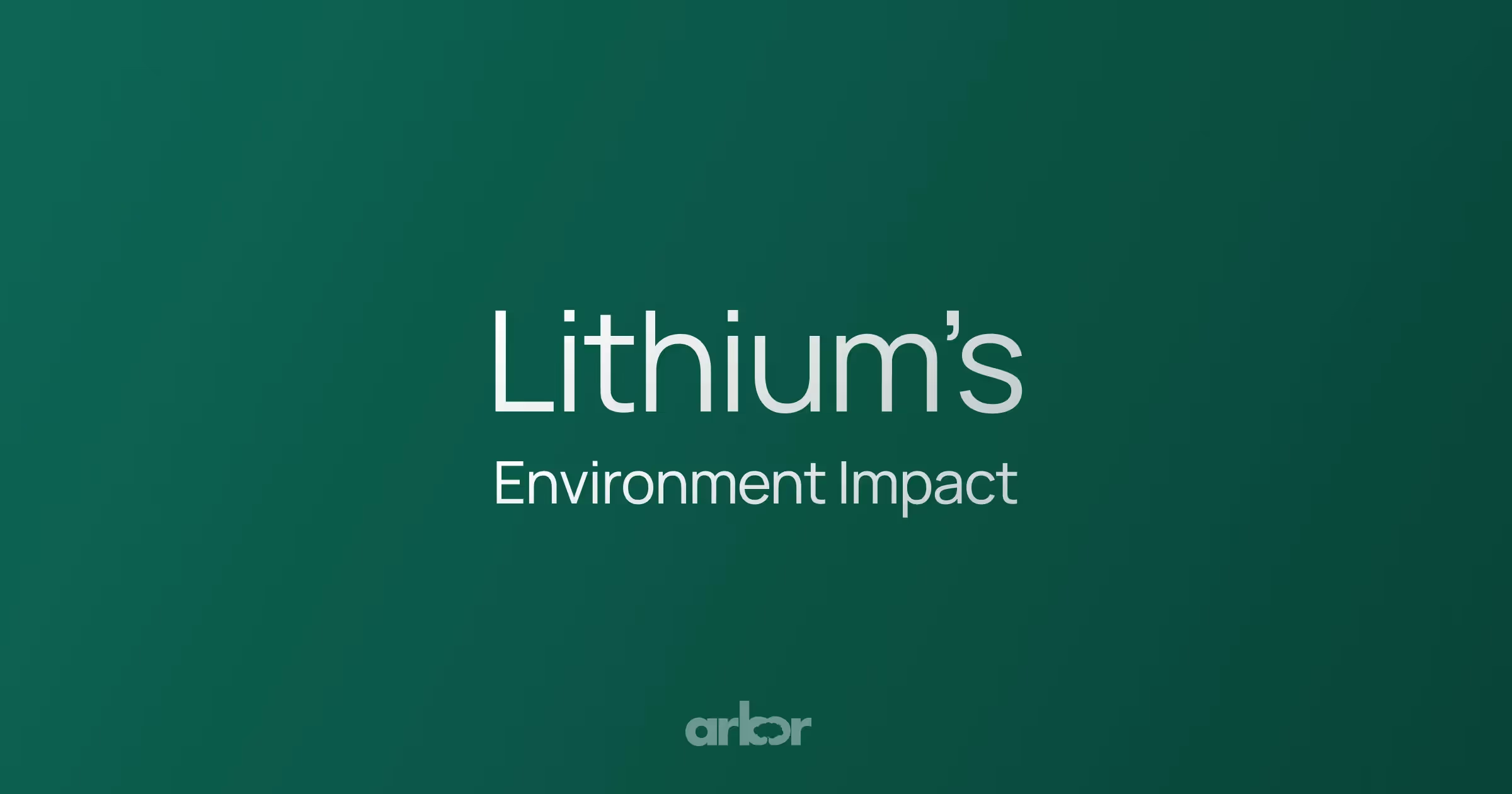
%20Arbor.avif)
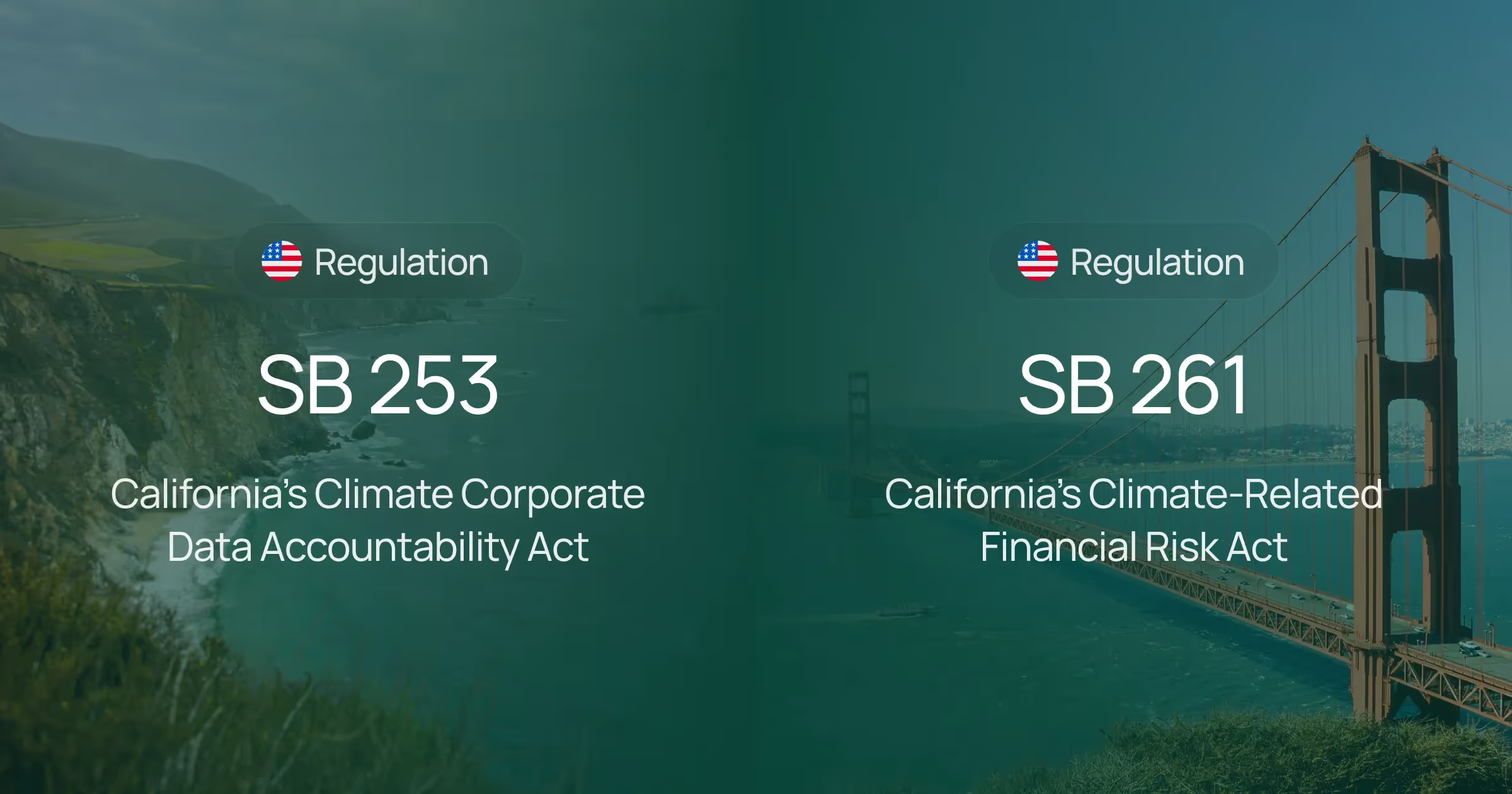

.avif)
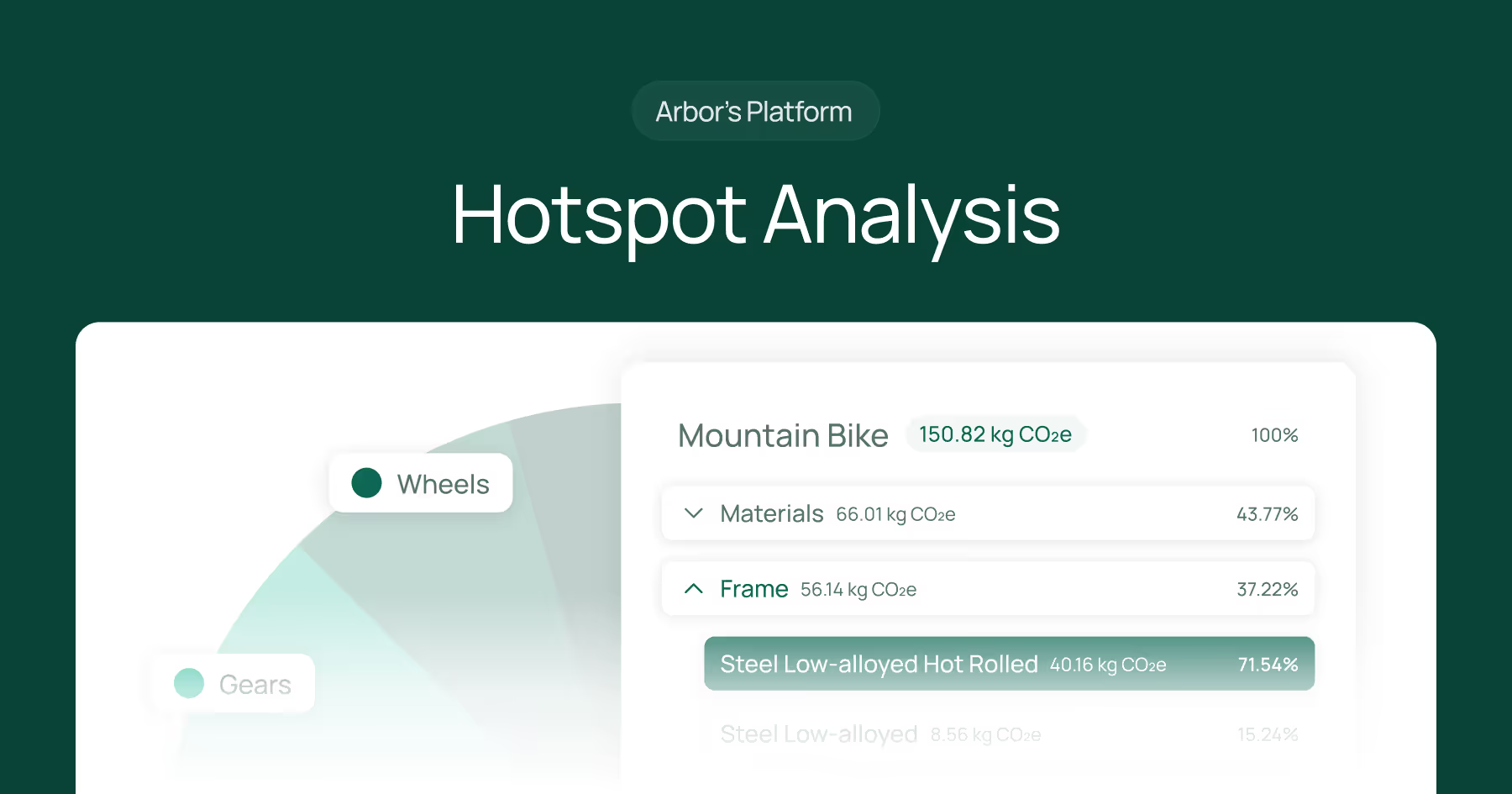
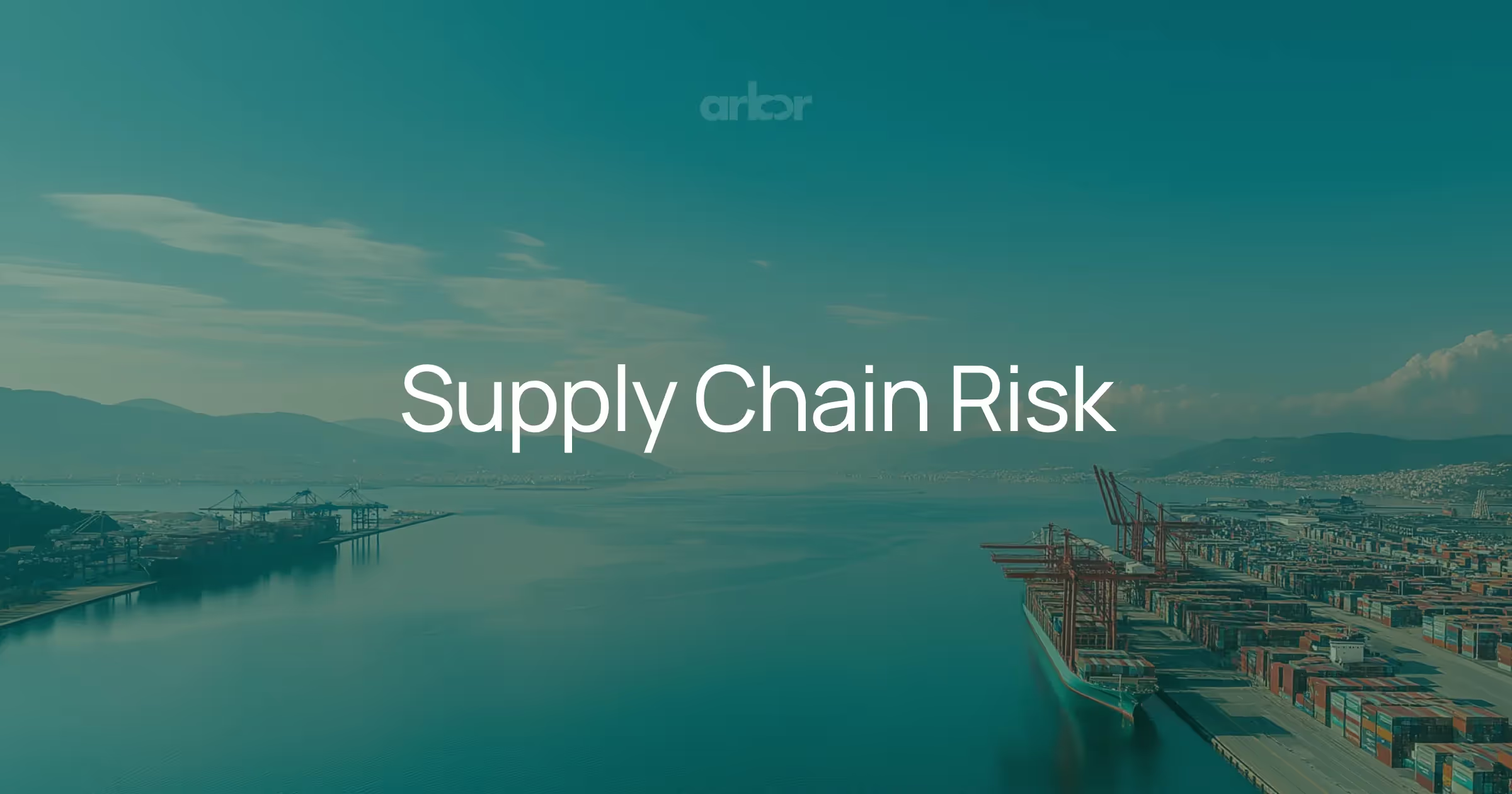
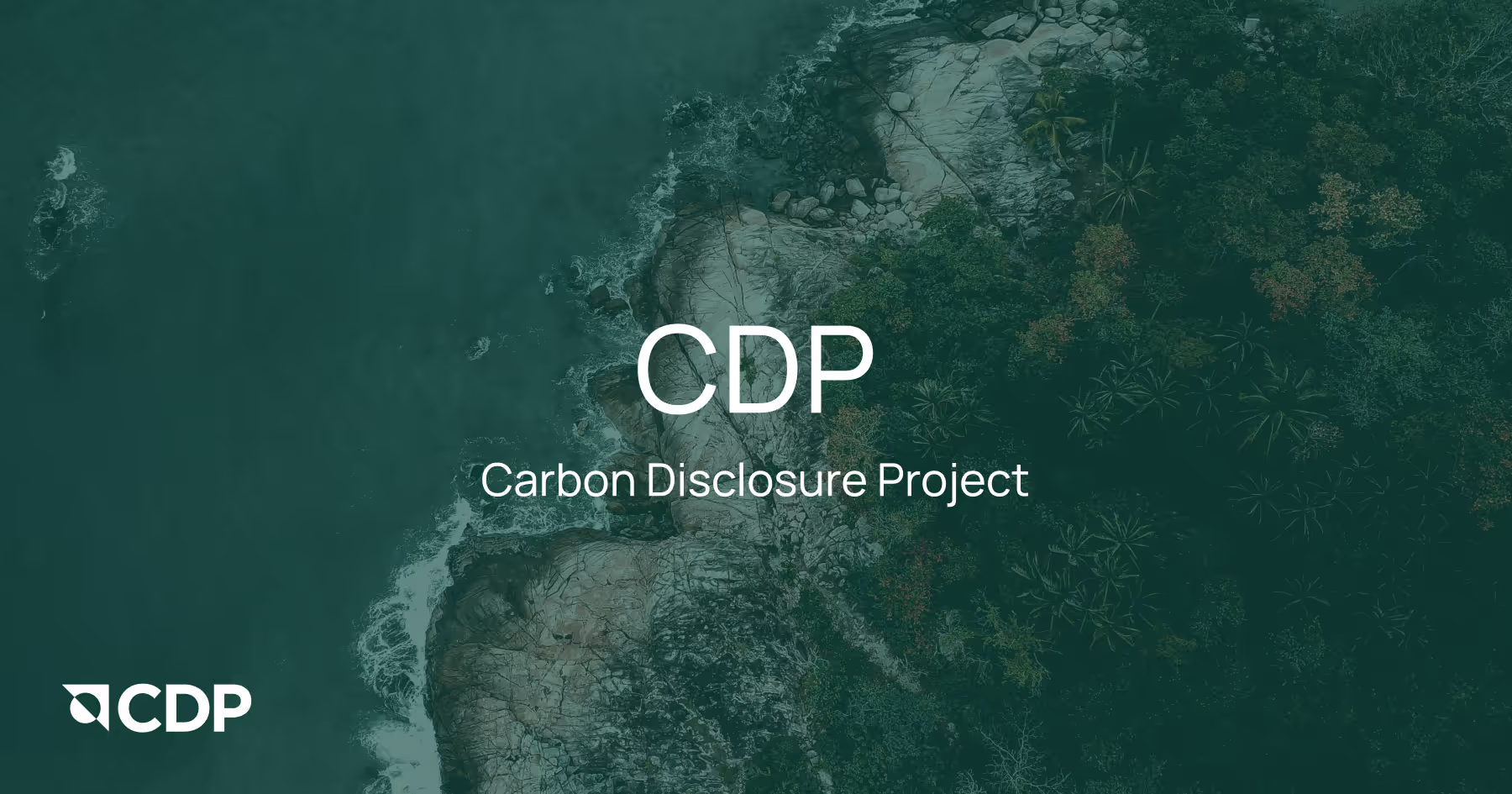
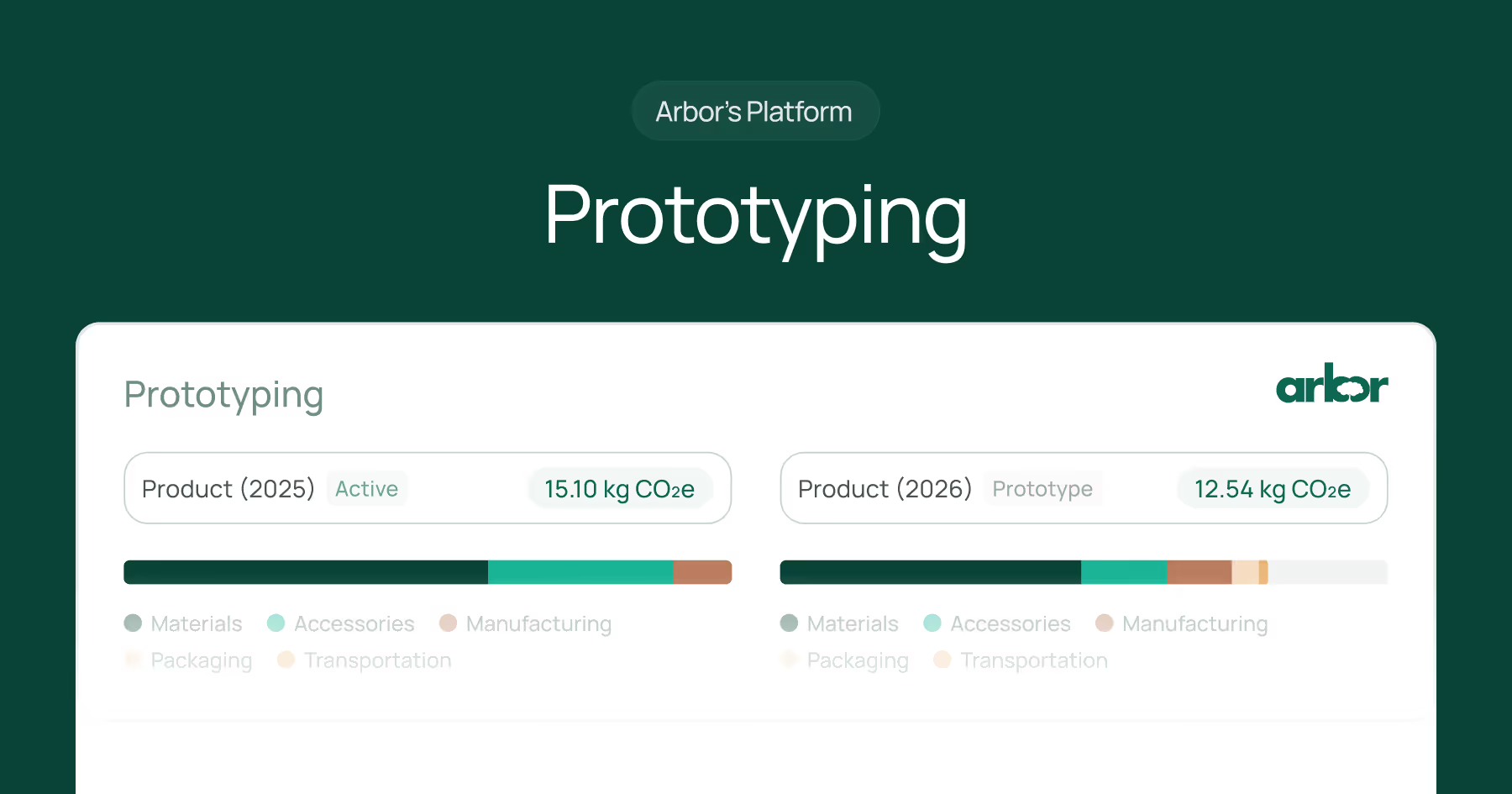
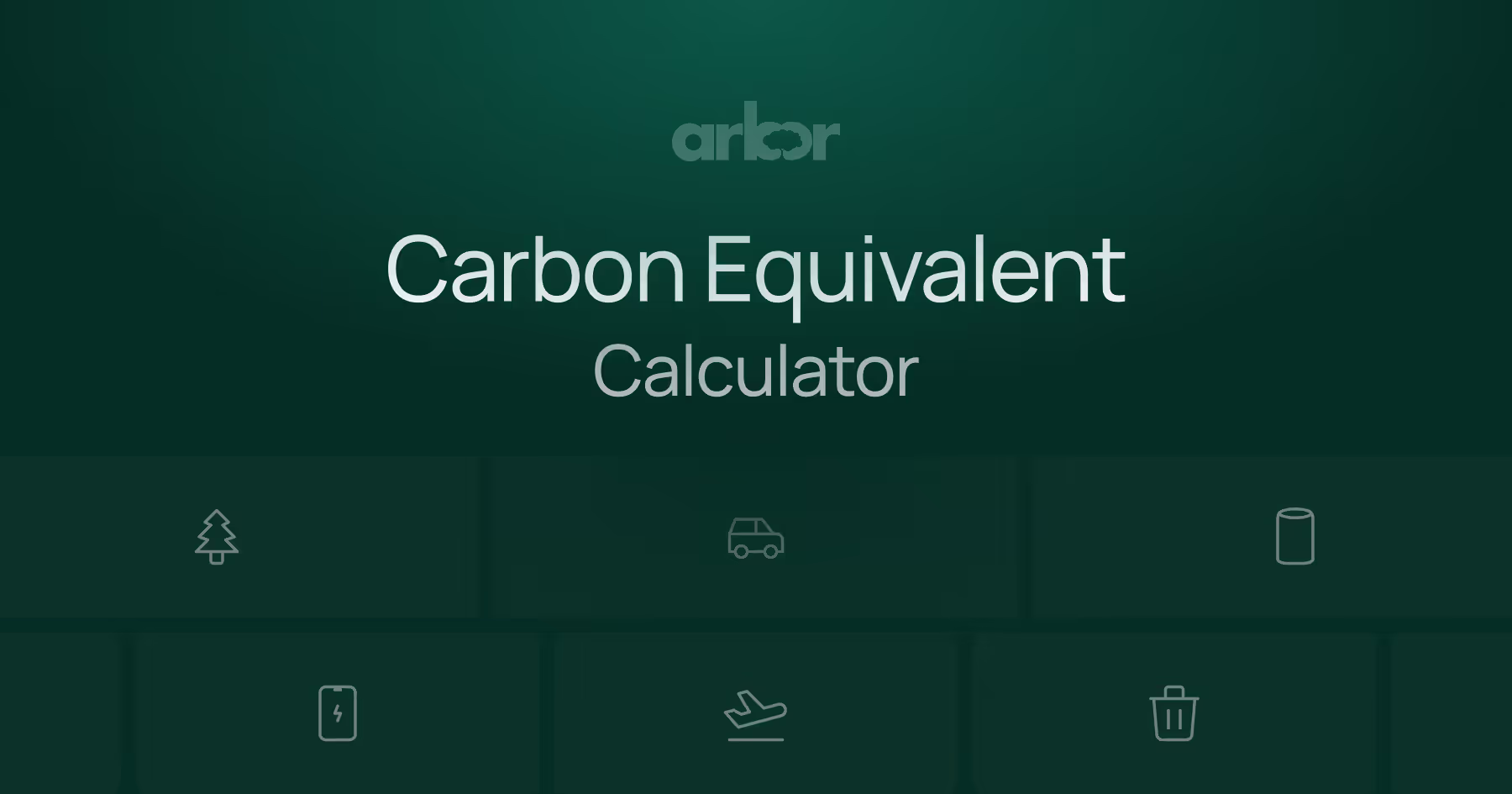
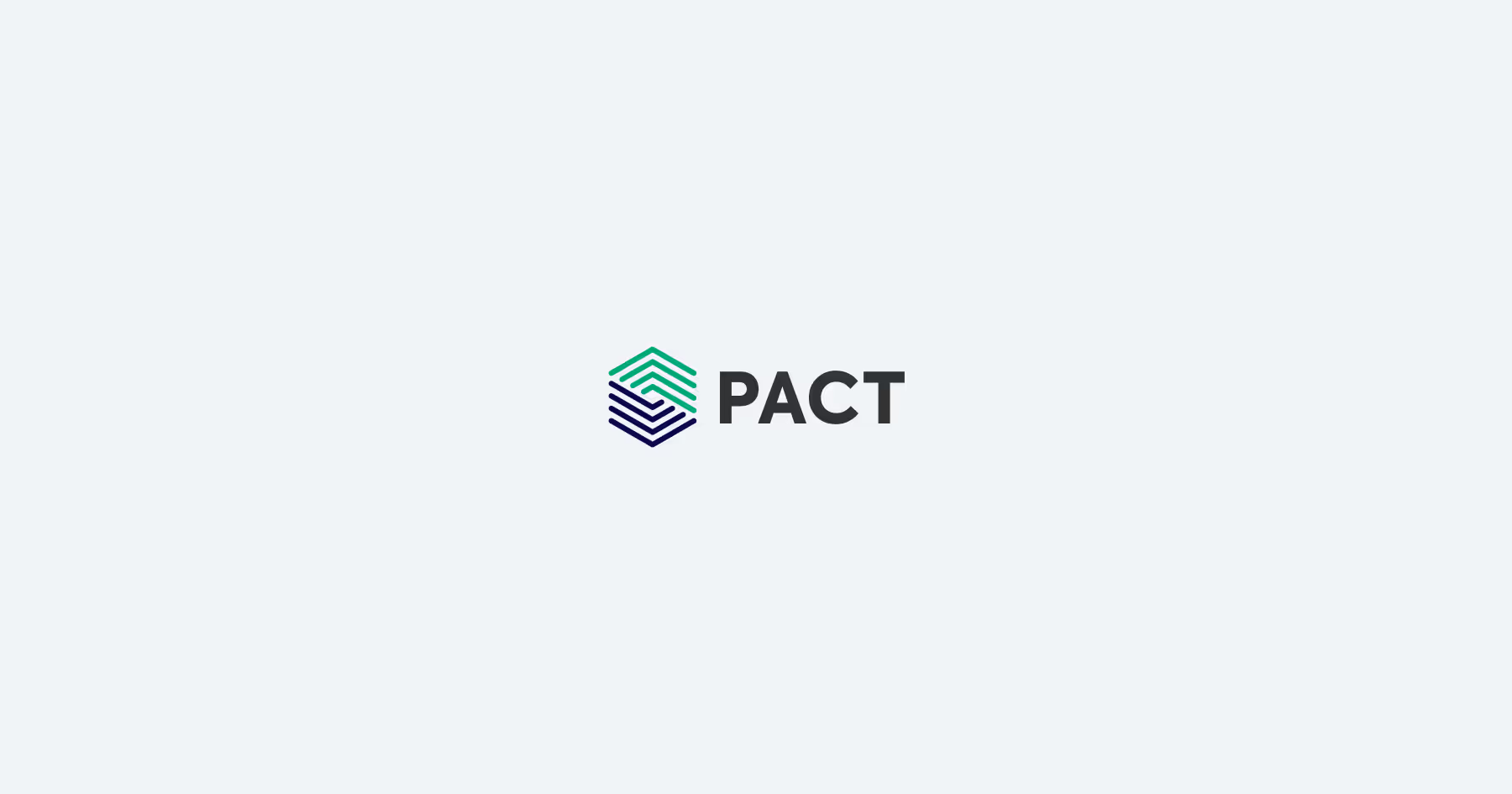
%20Arbor%20Canada.avif)
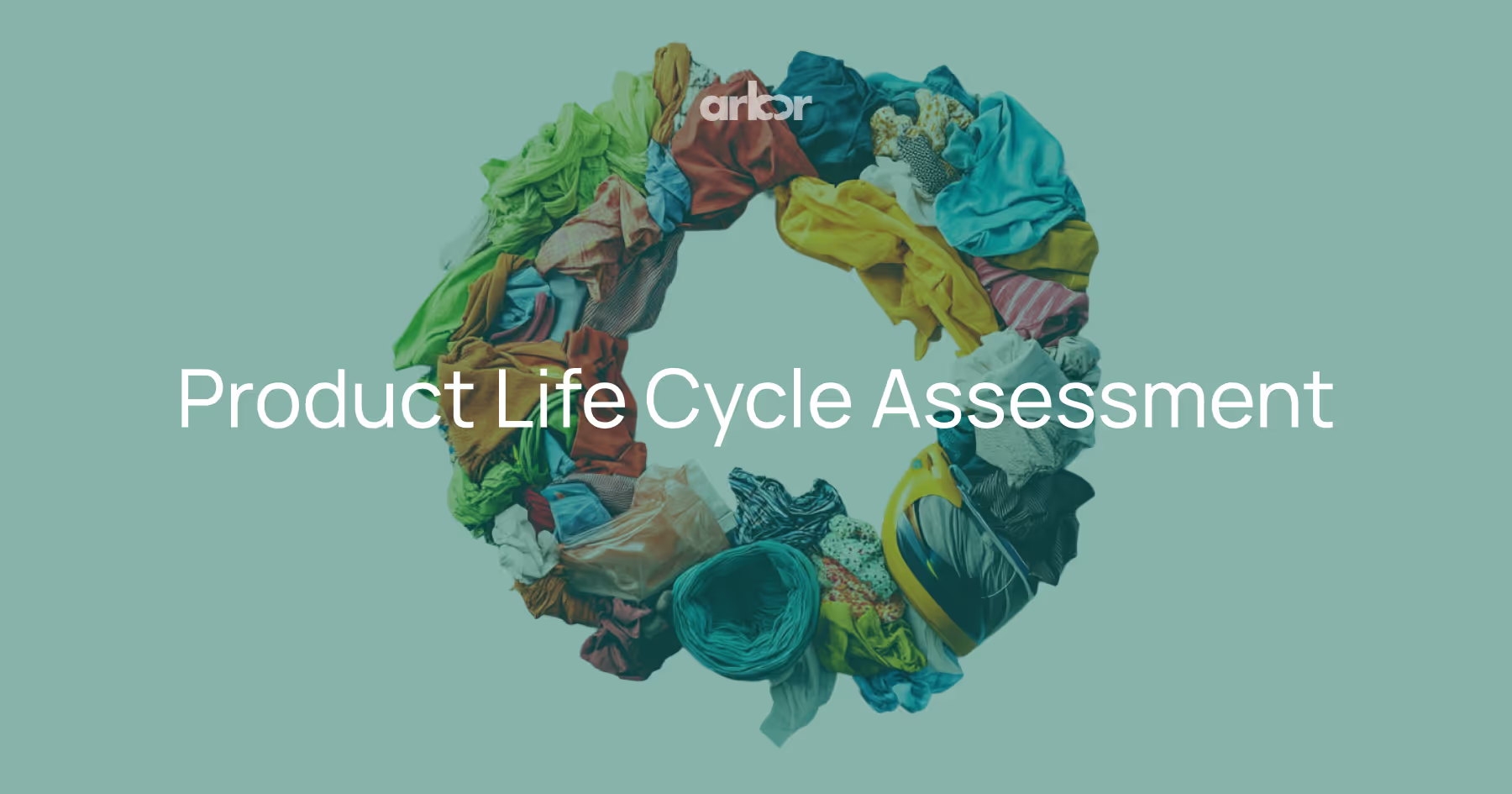
.avif)
%20Arbor.avif)
.avif)
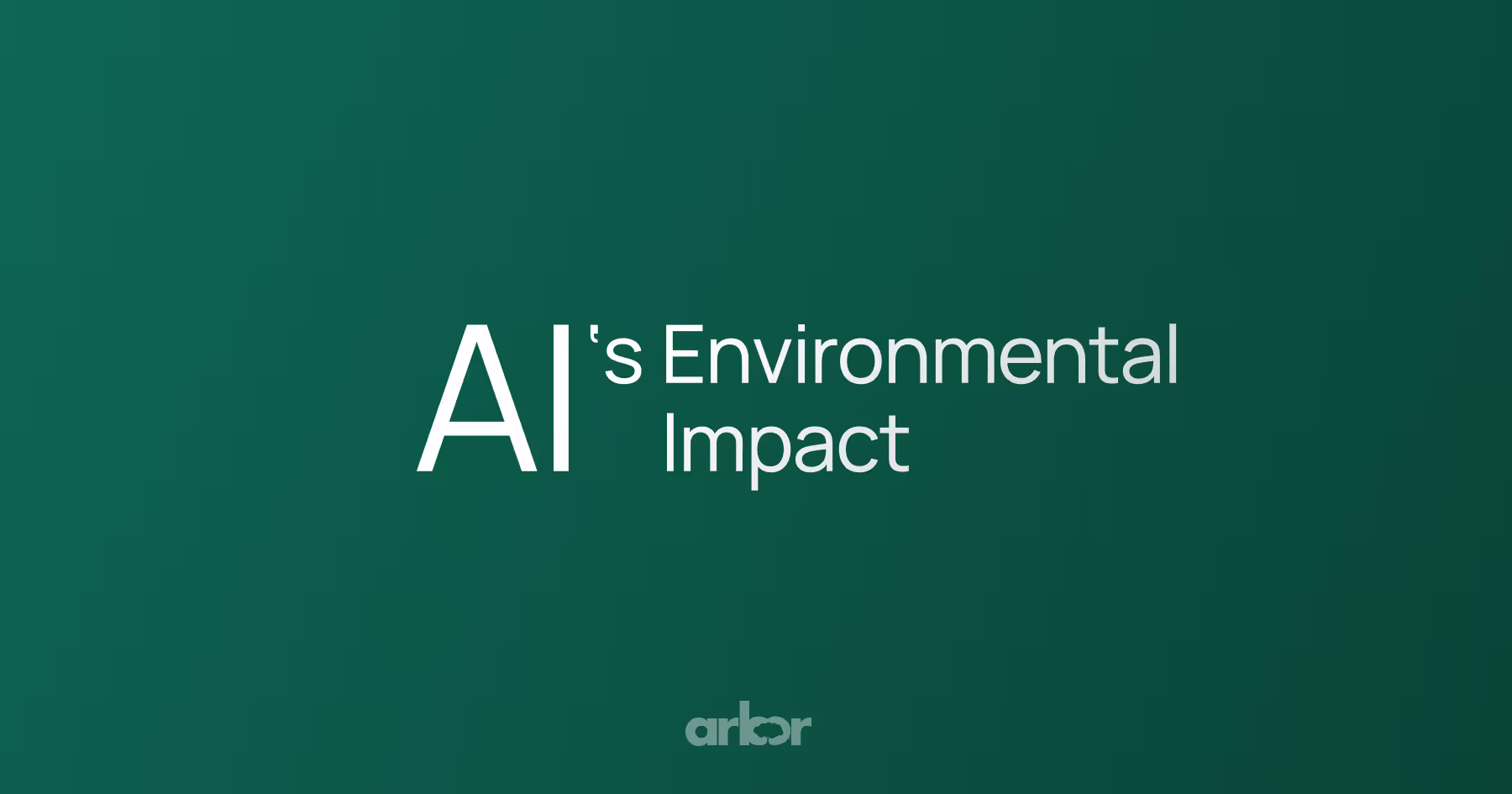
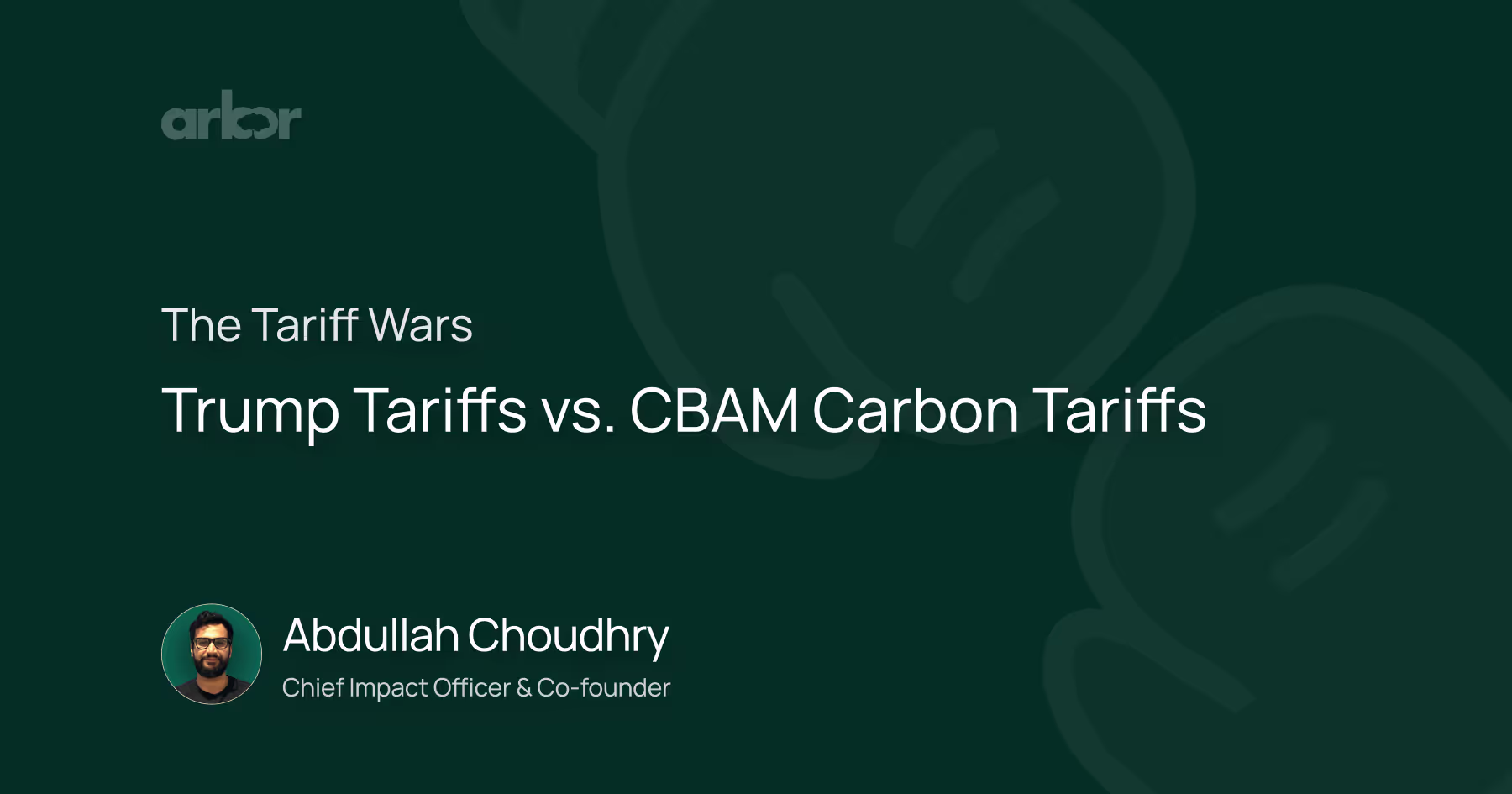

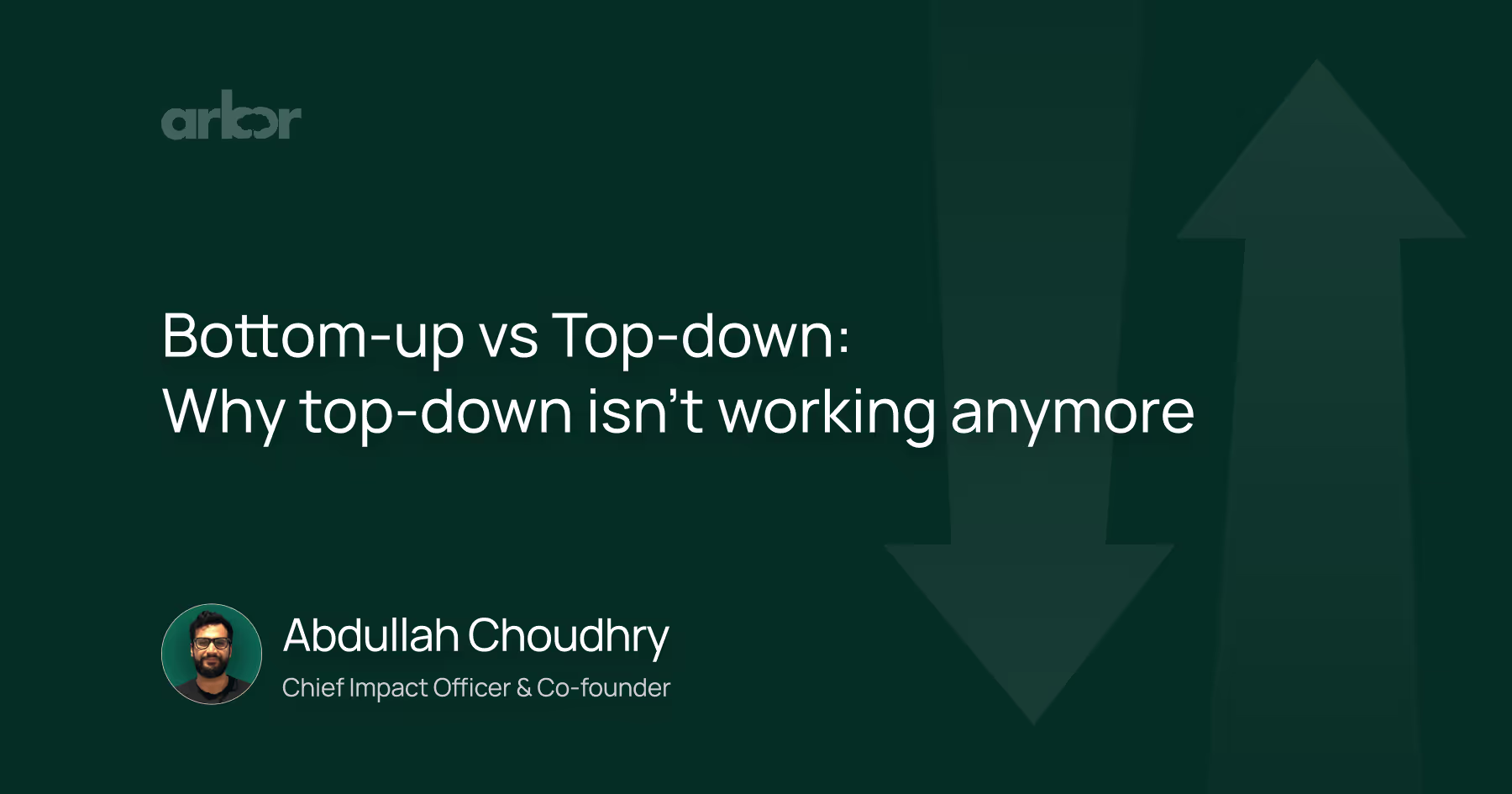
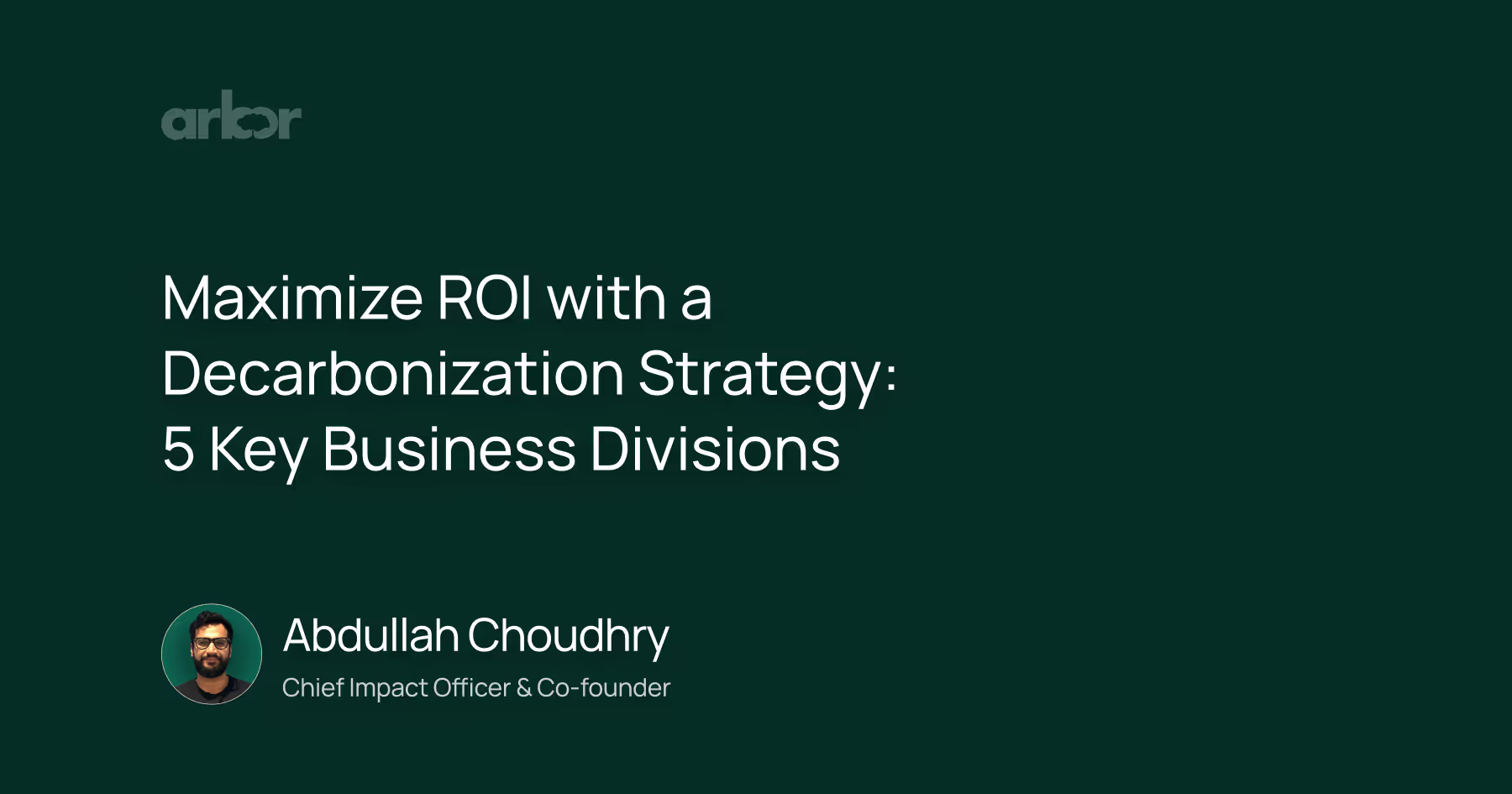

_.avif)
.avif)
%20Arbor.avif)









.avif)
.avif)
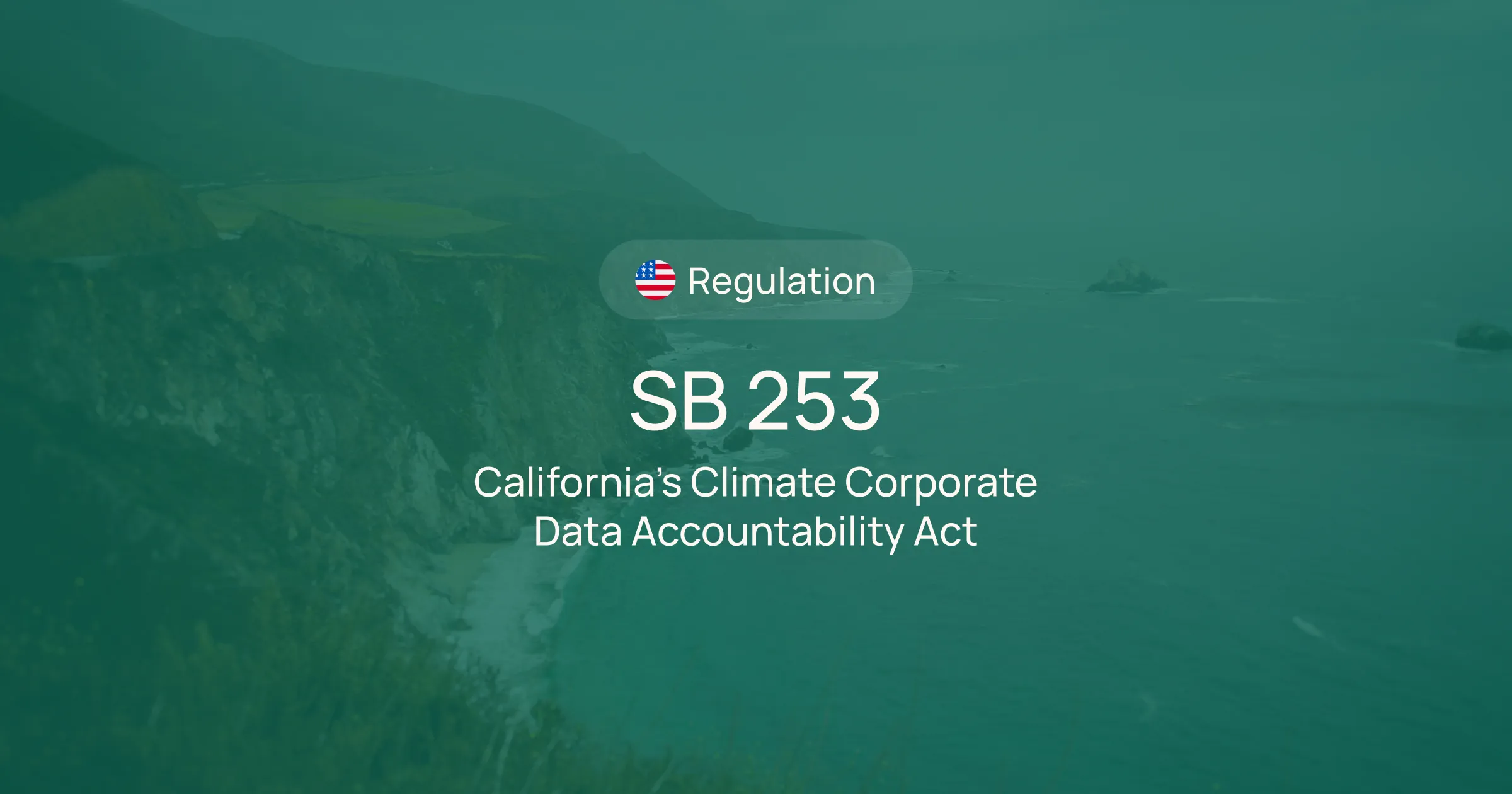



%20EU%20Regulation.avif)







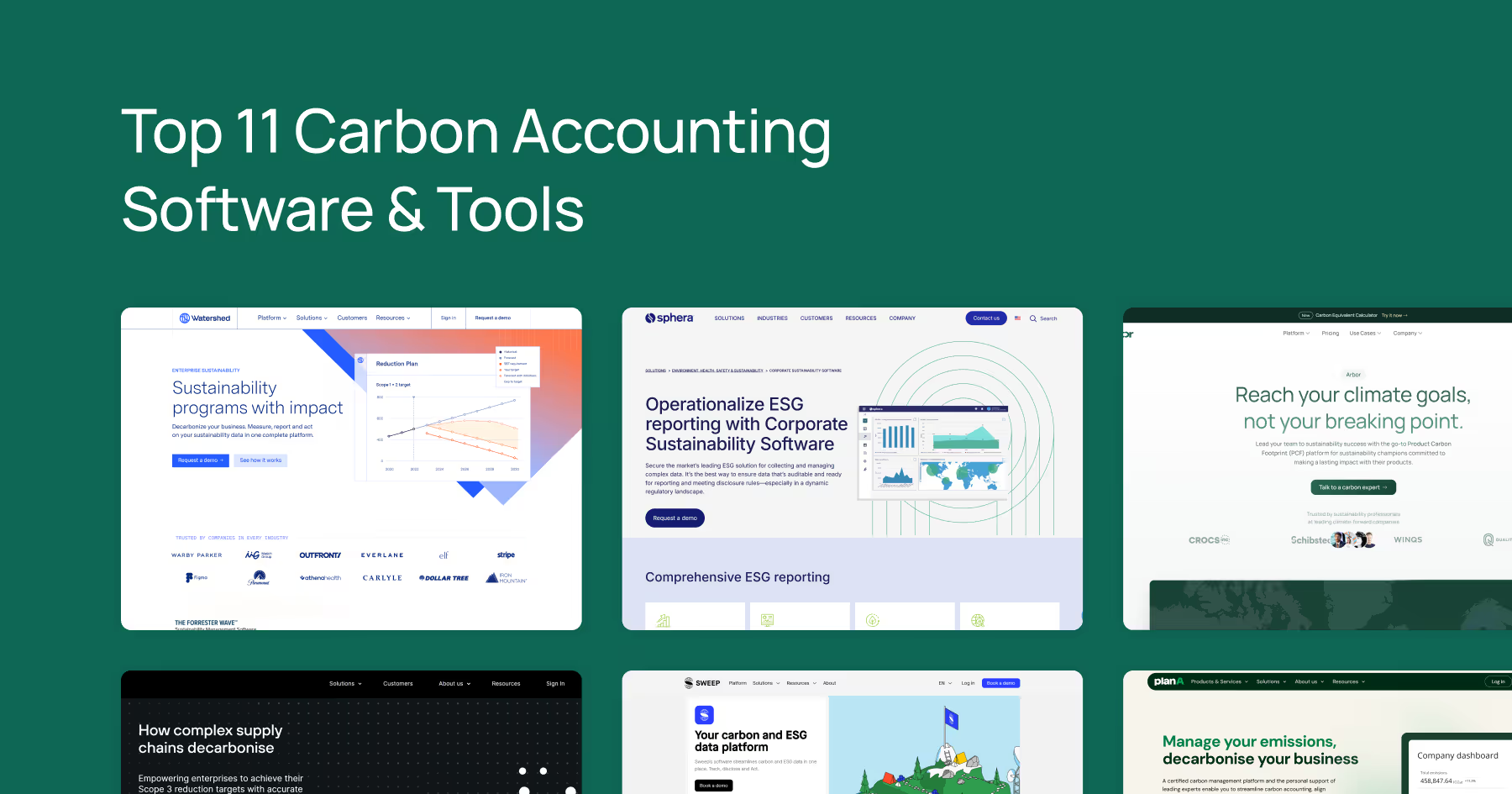




.avif)


%20Arbor.avif)









_%20_%20Carbon%20101.avif)







.avif)

.avif)
.avif)



.avif)








